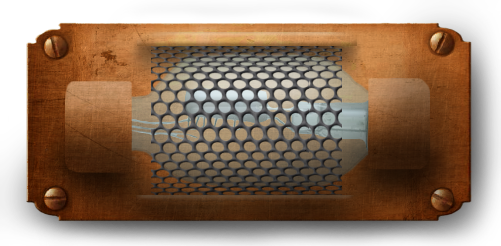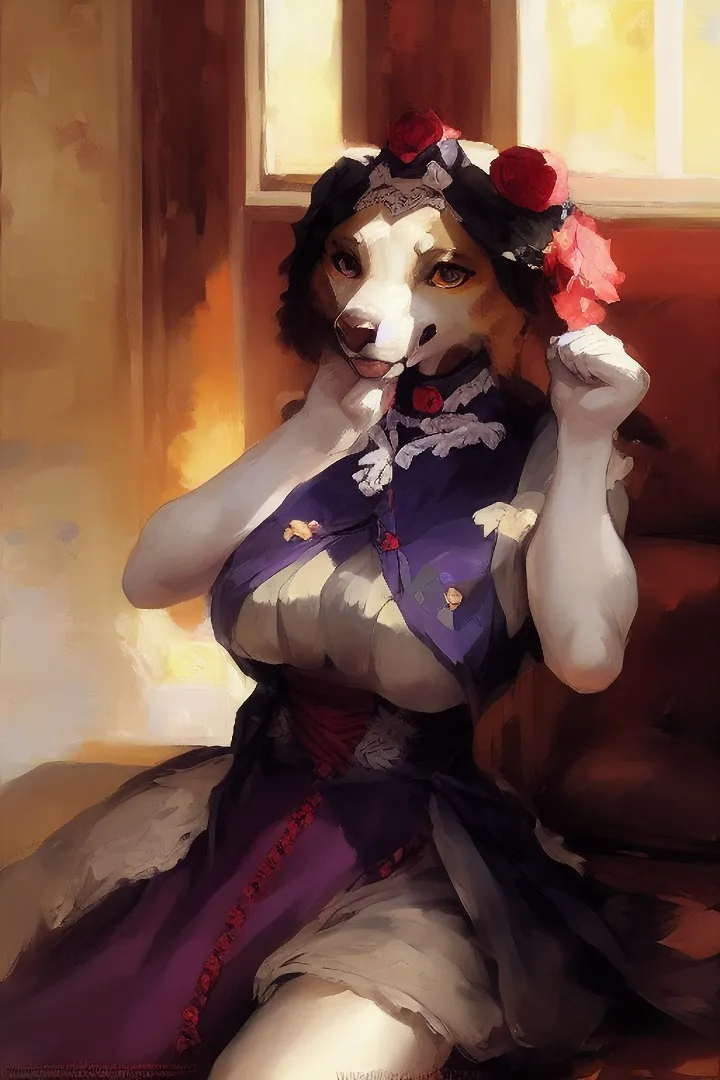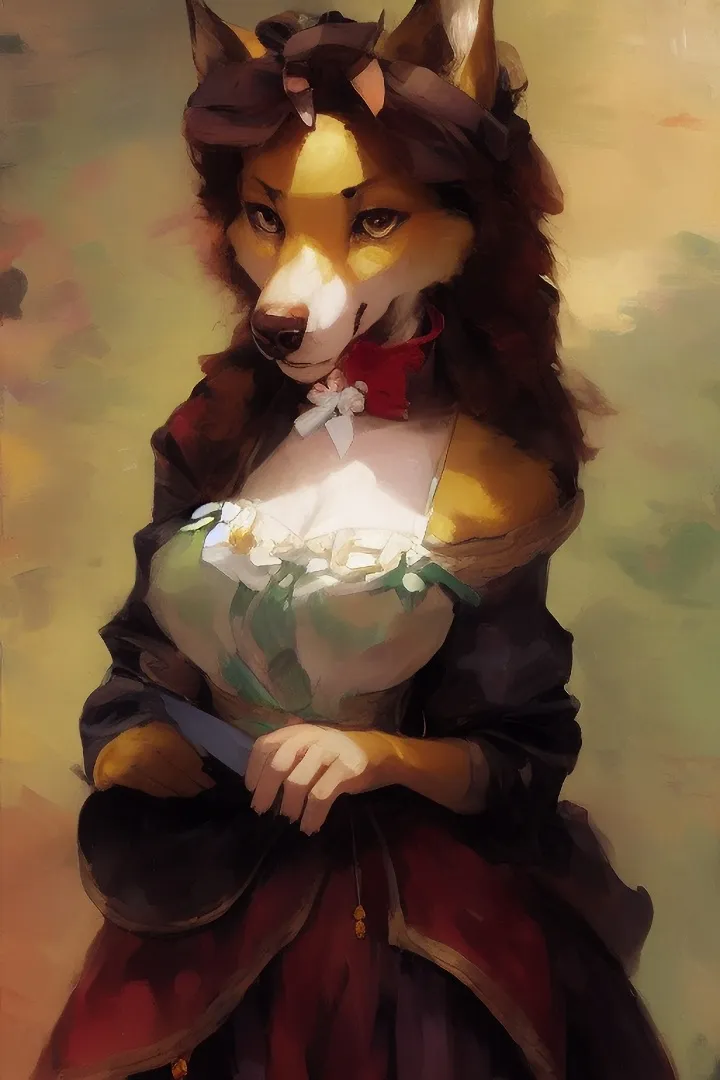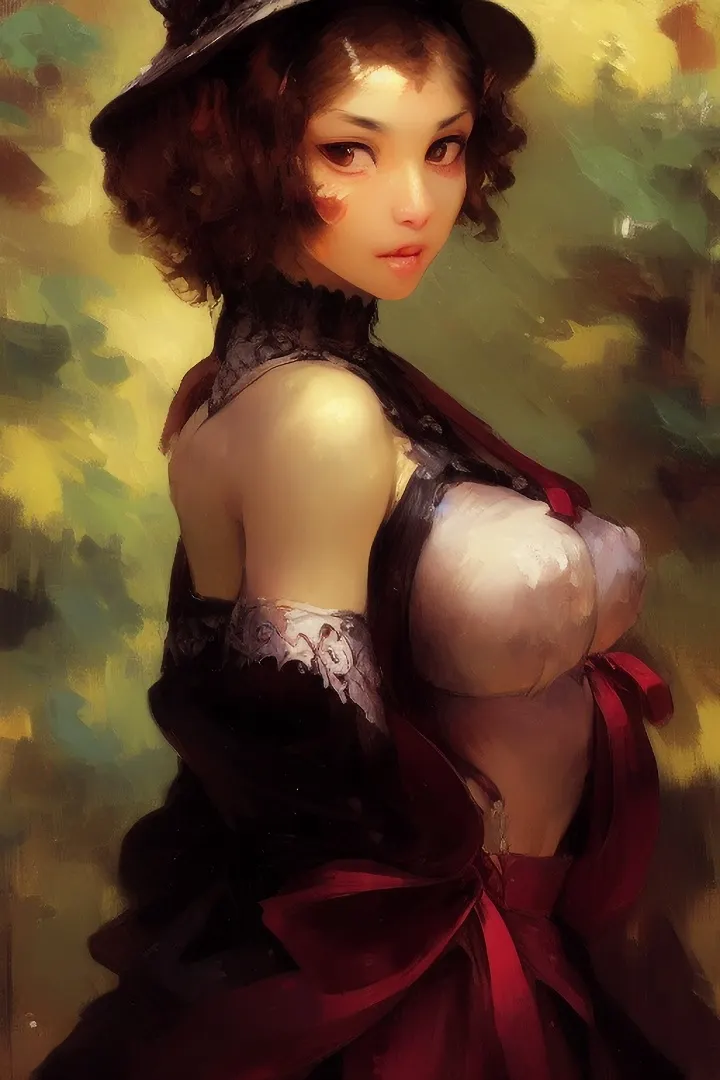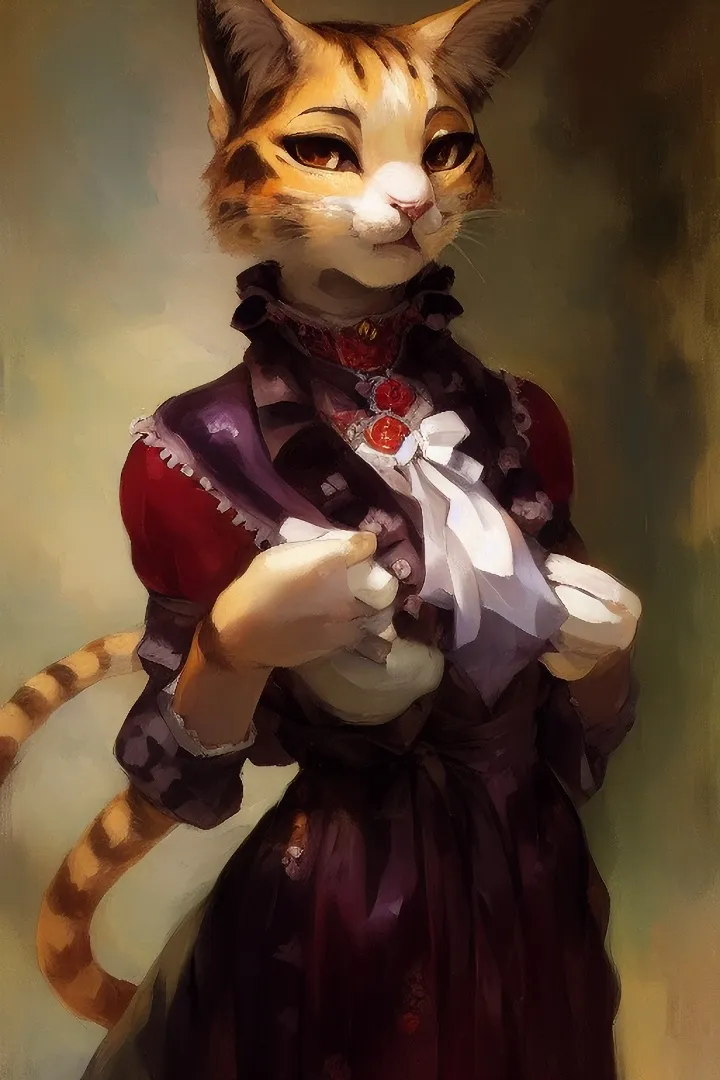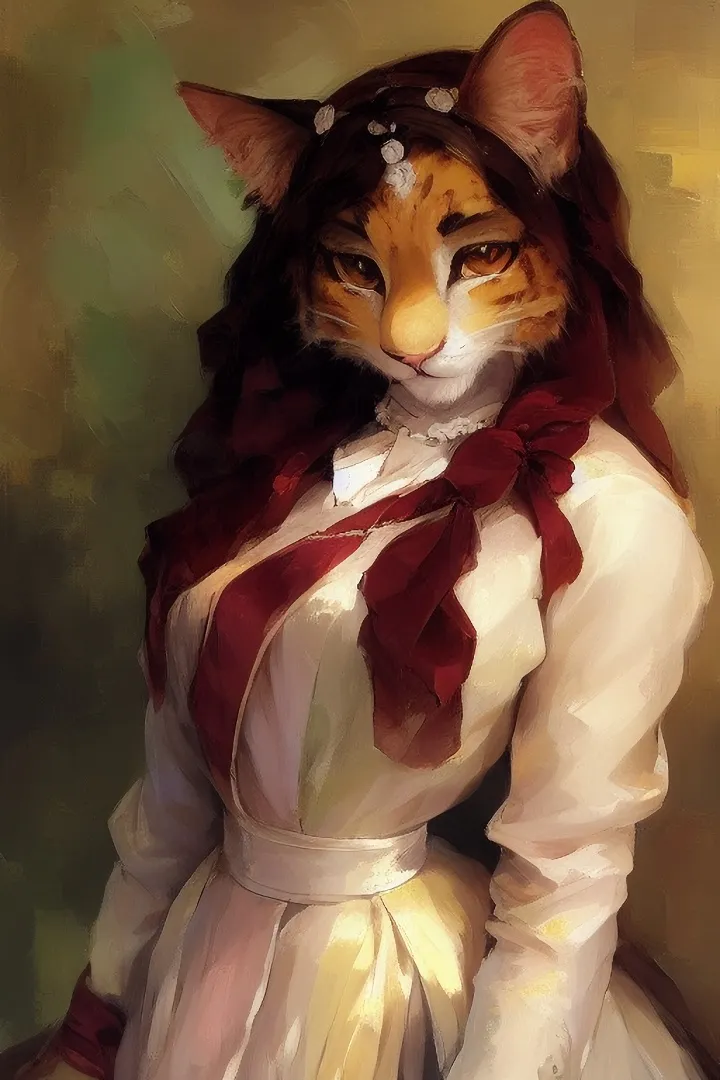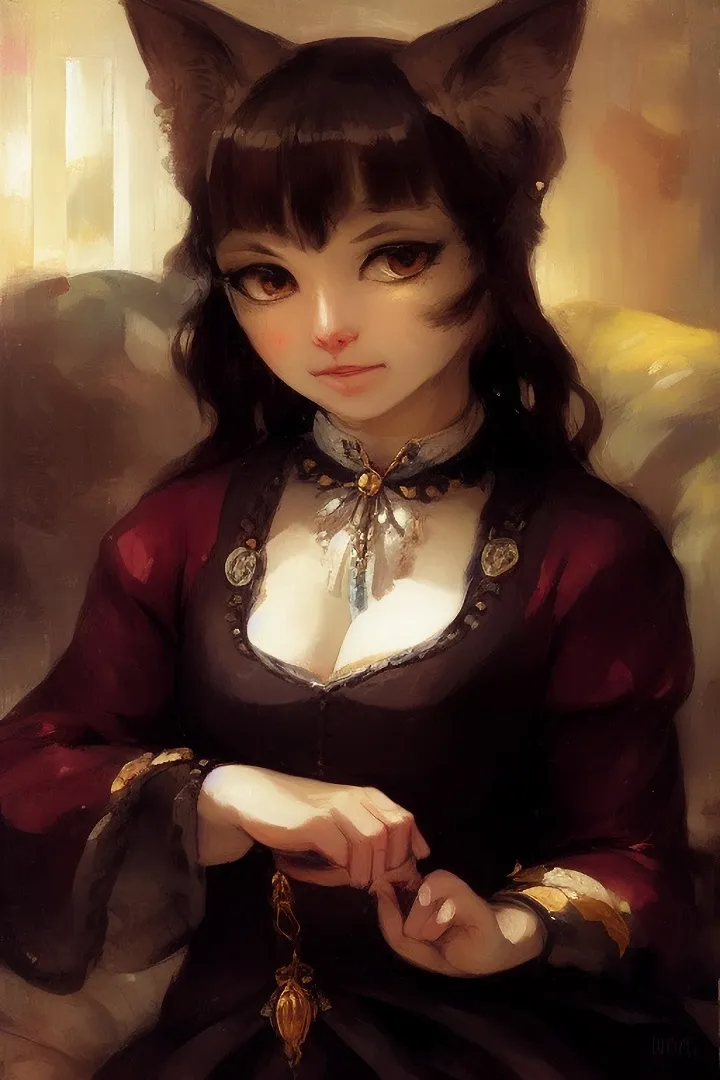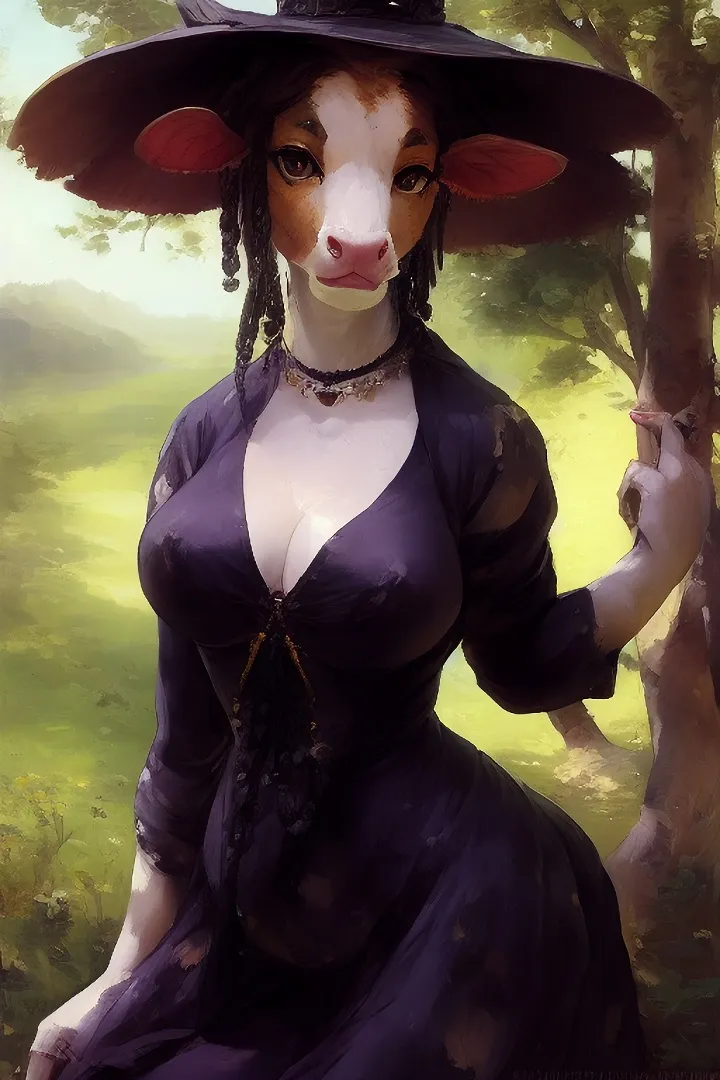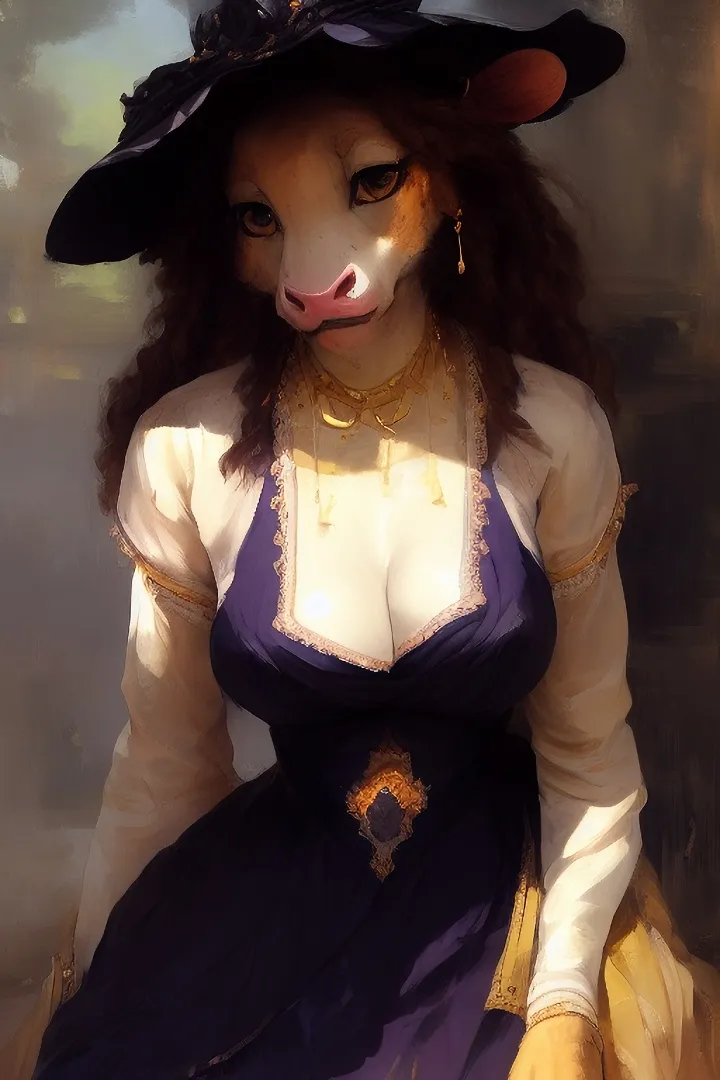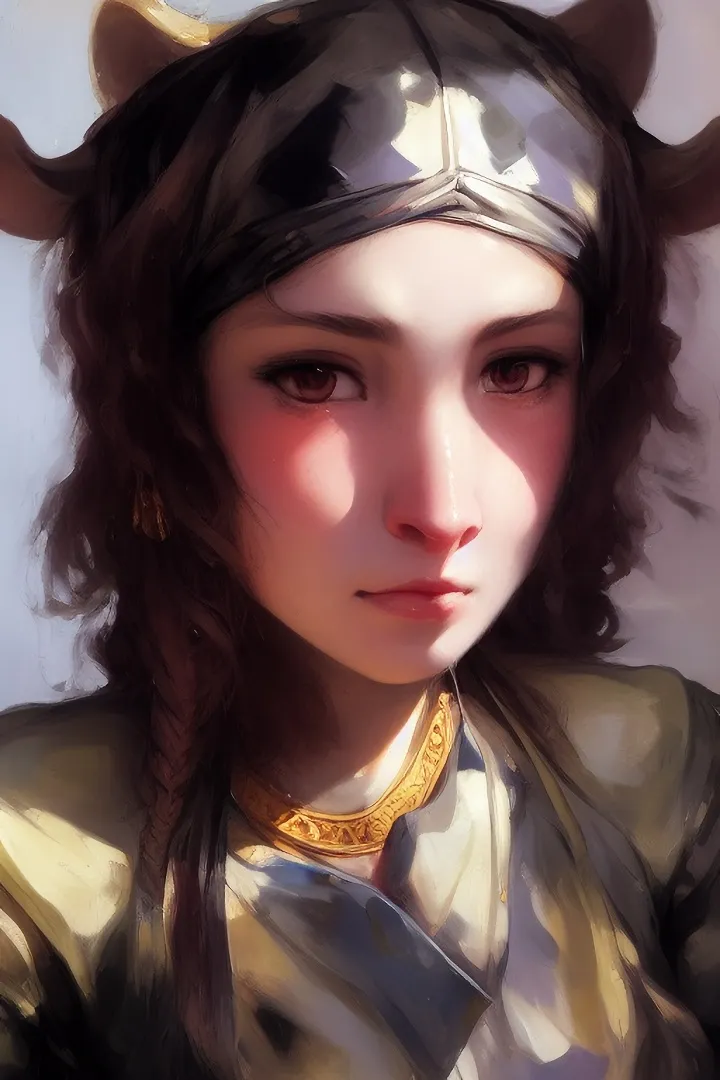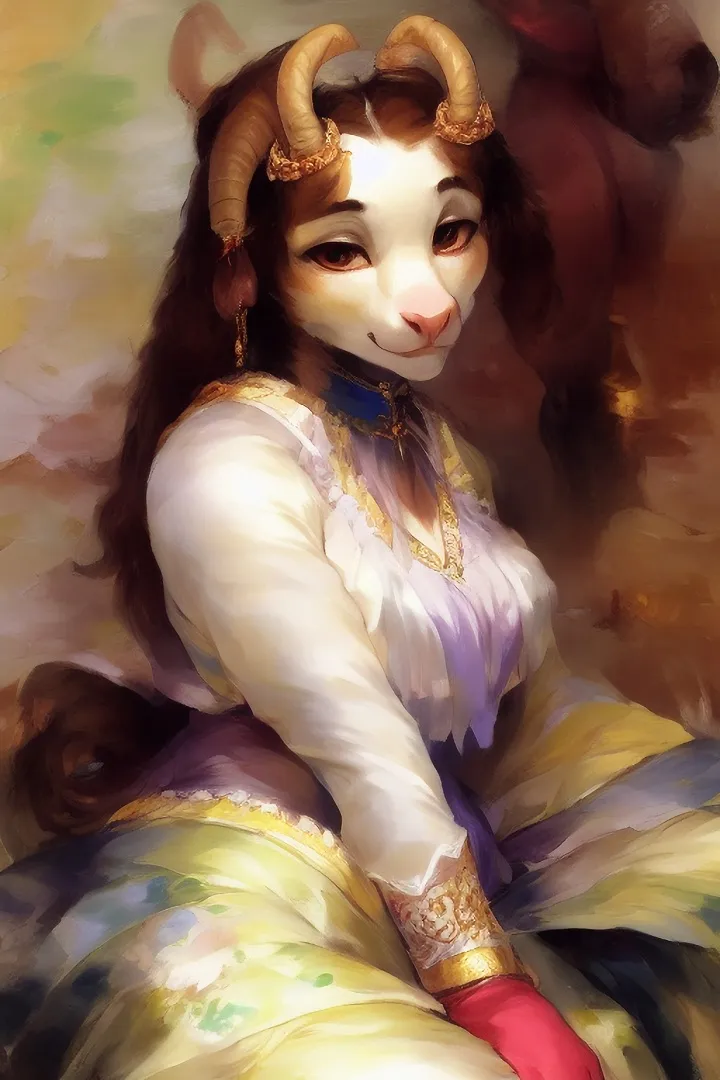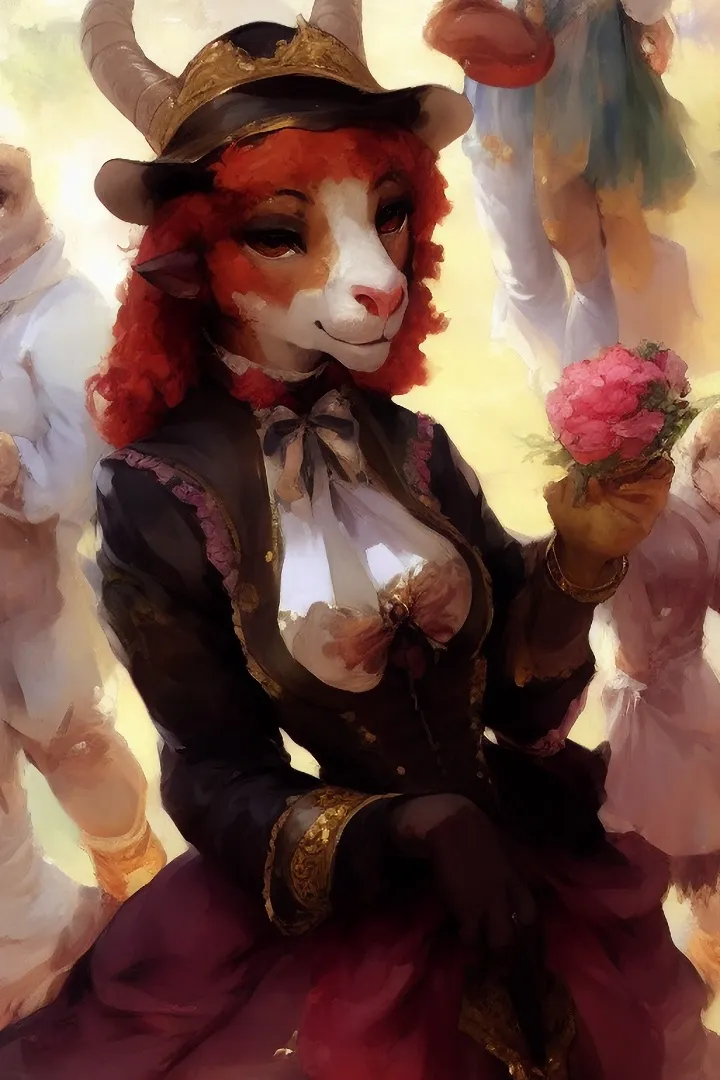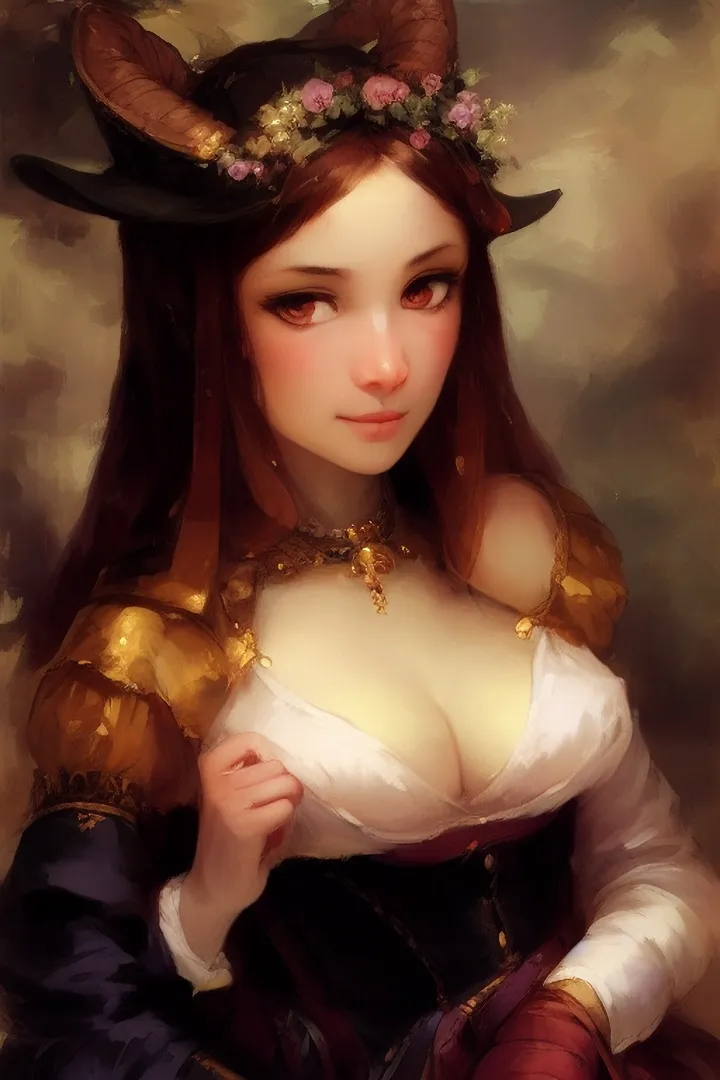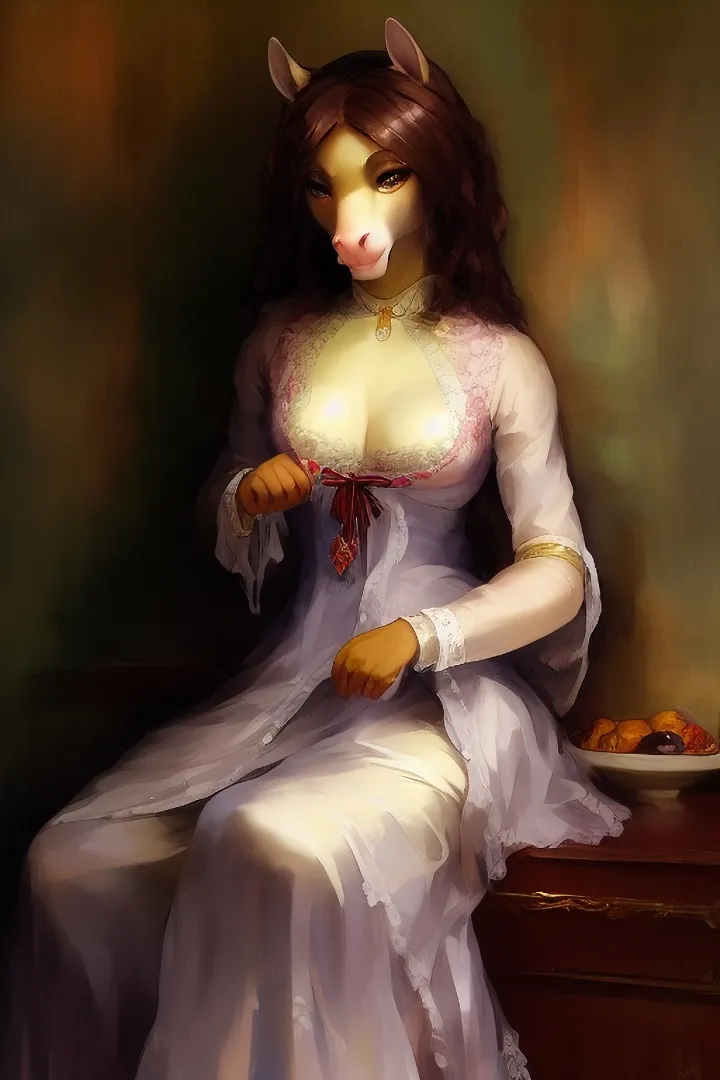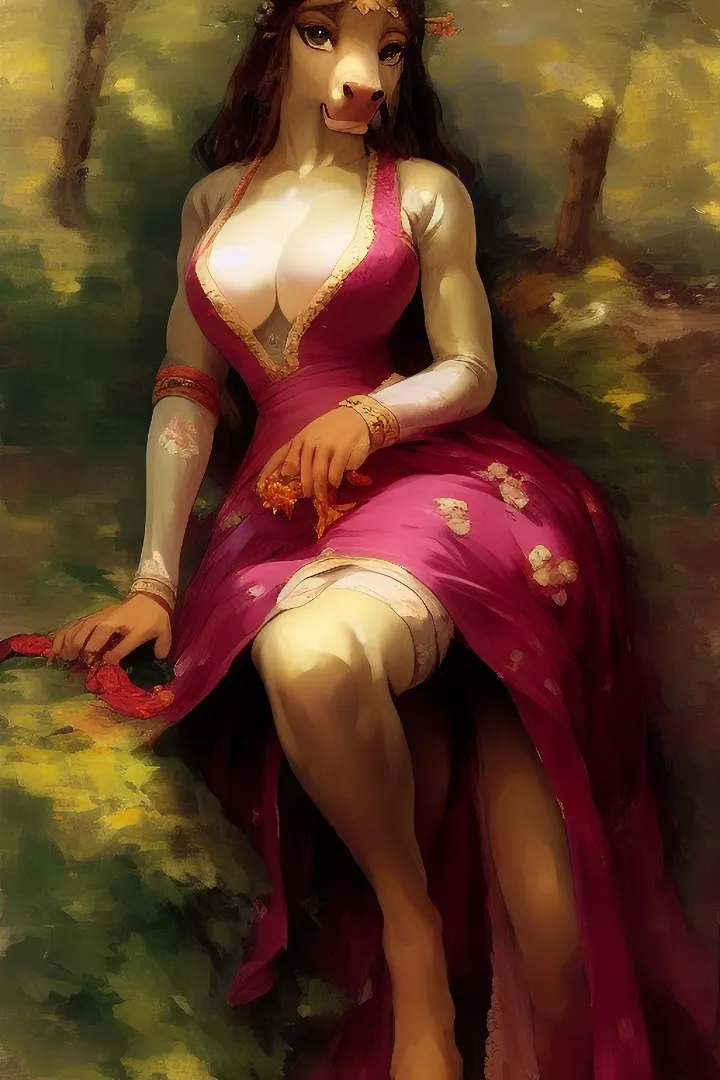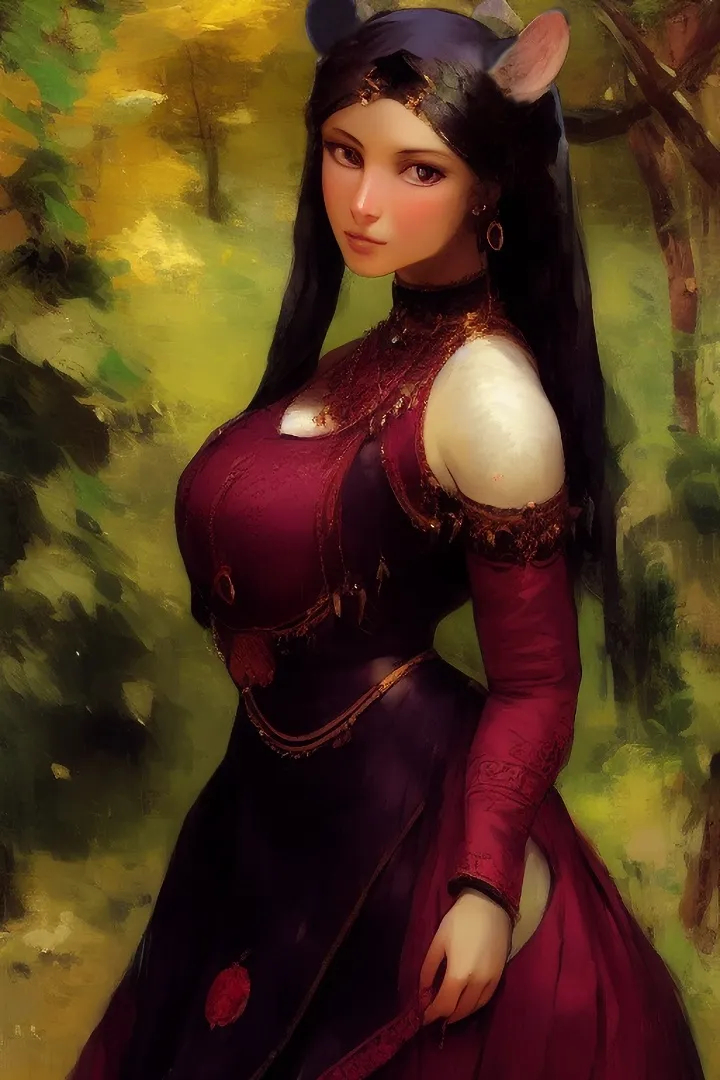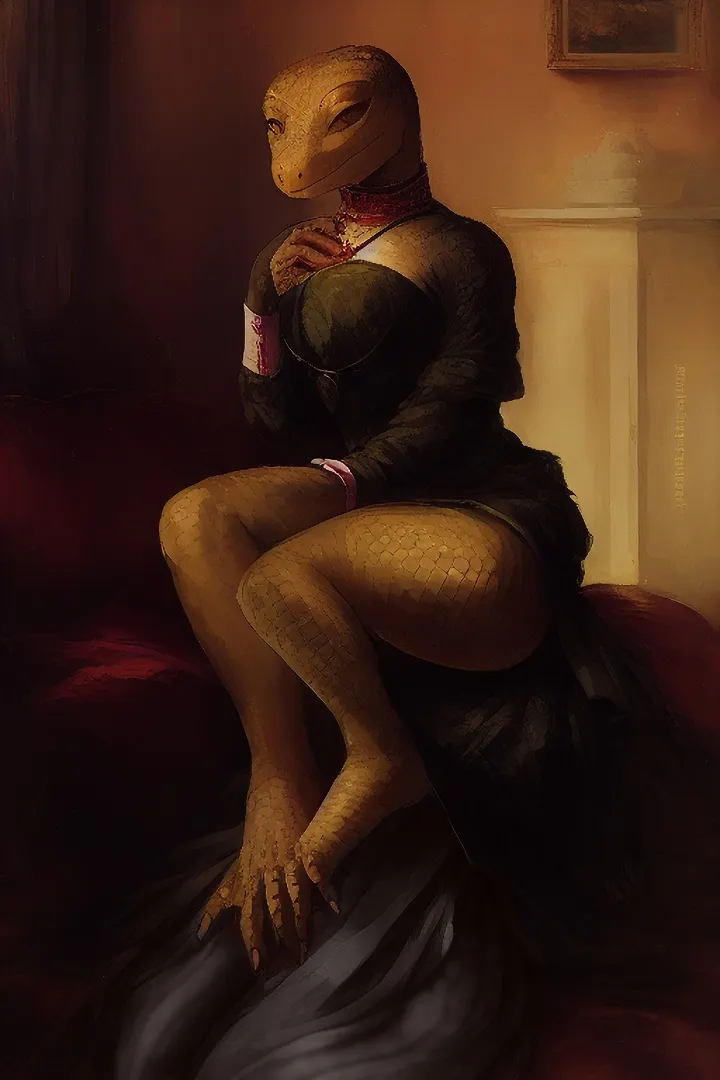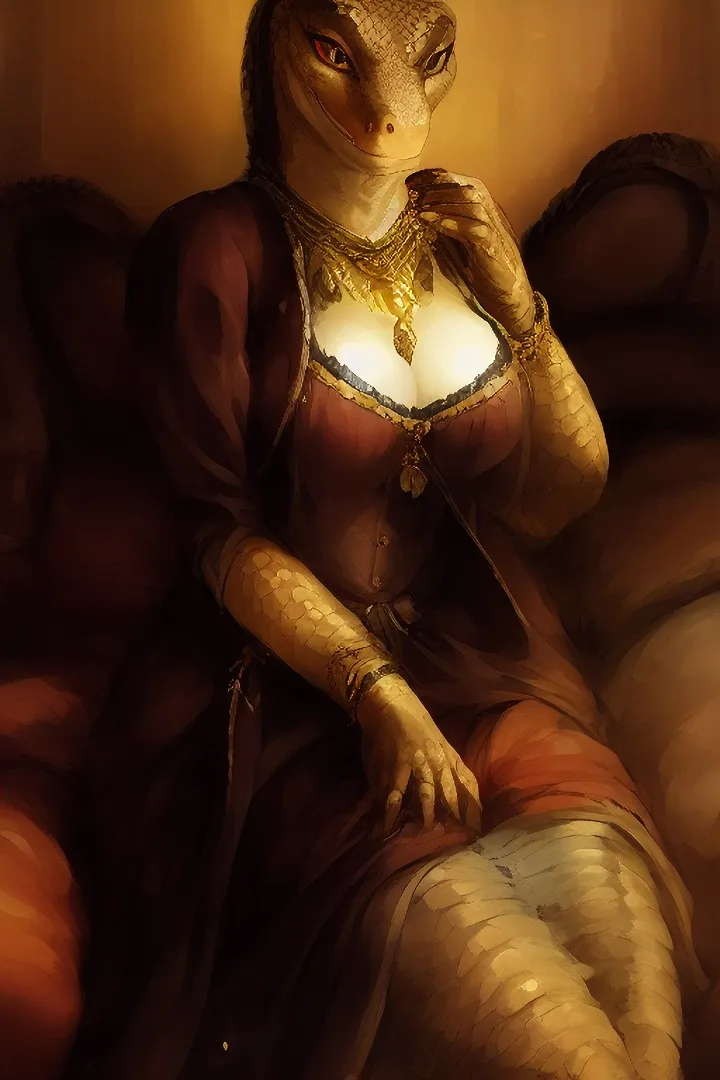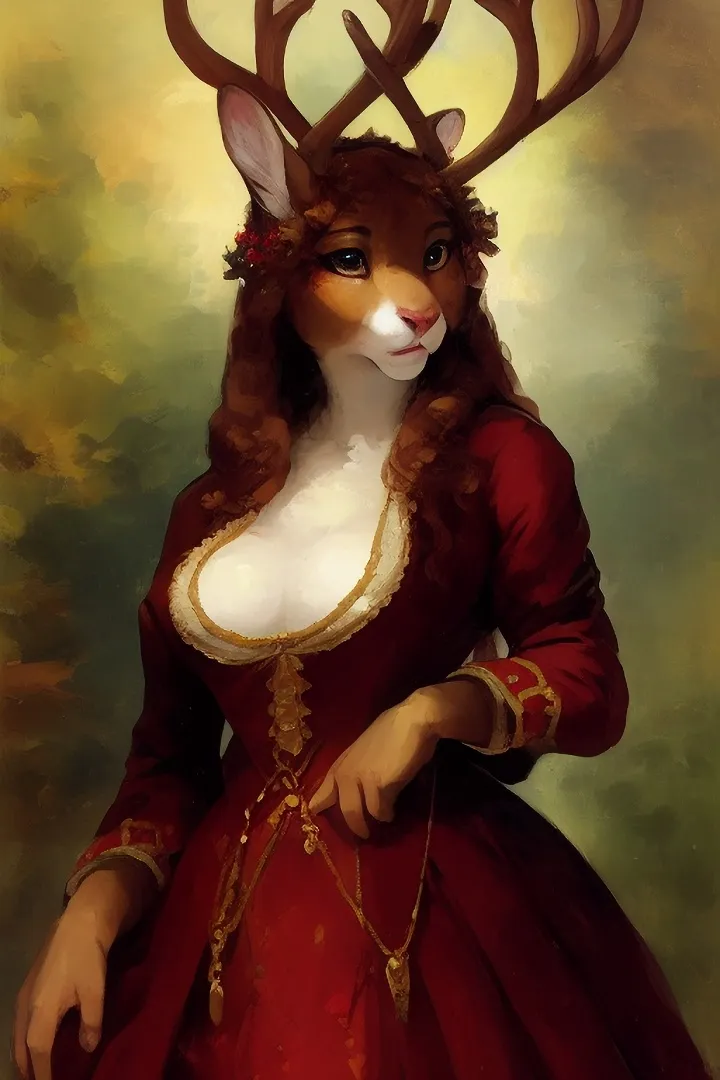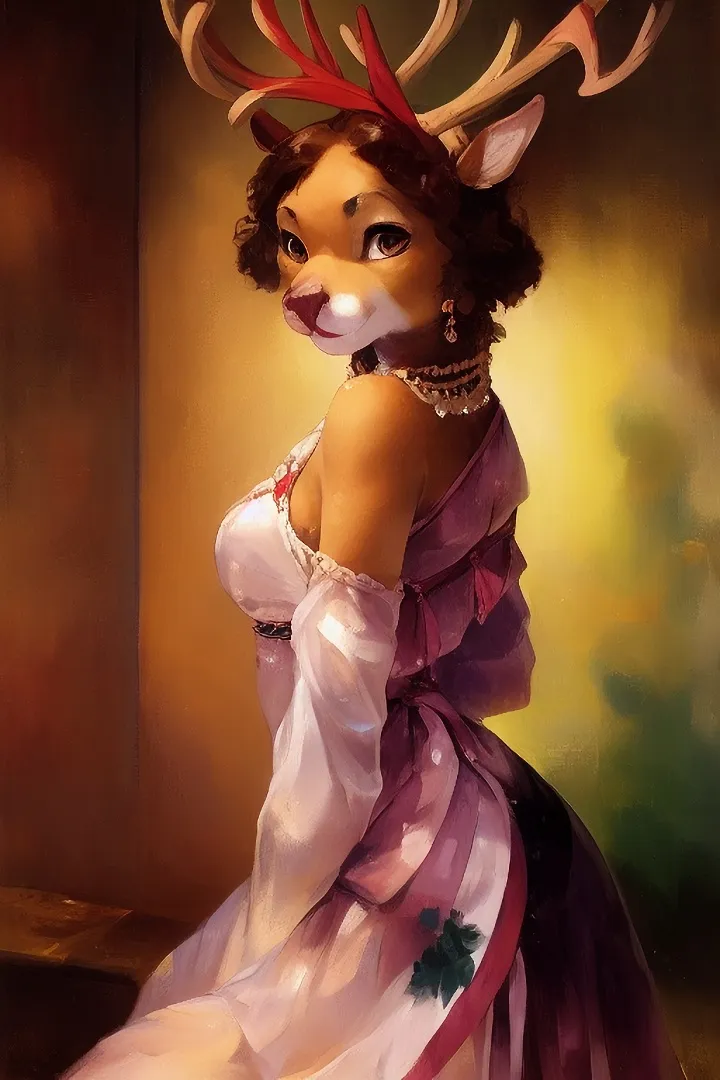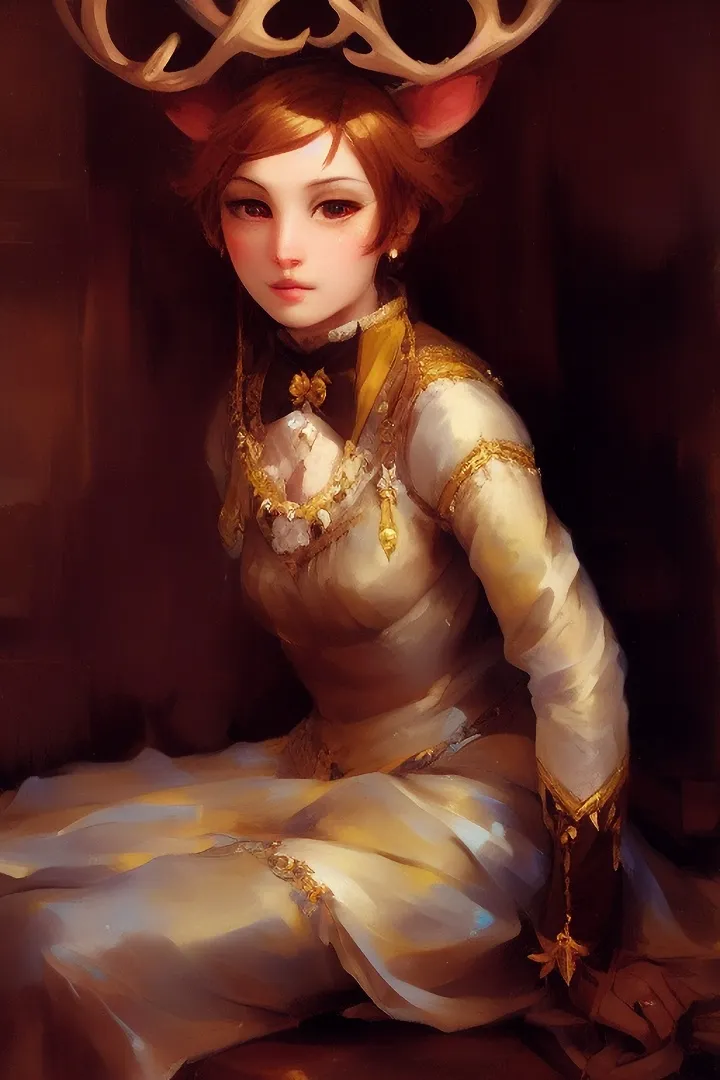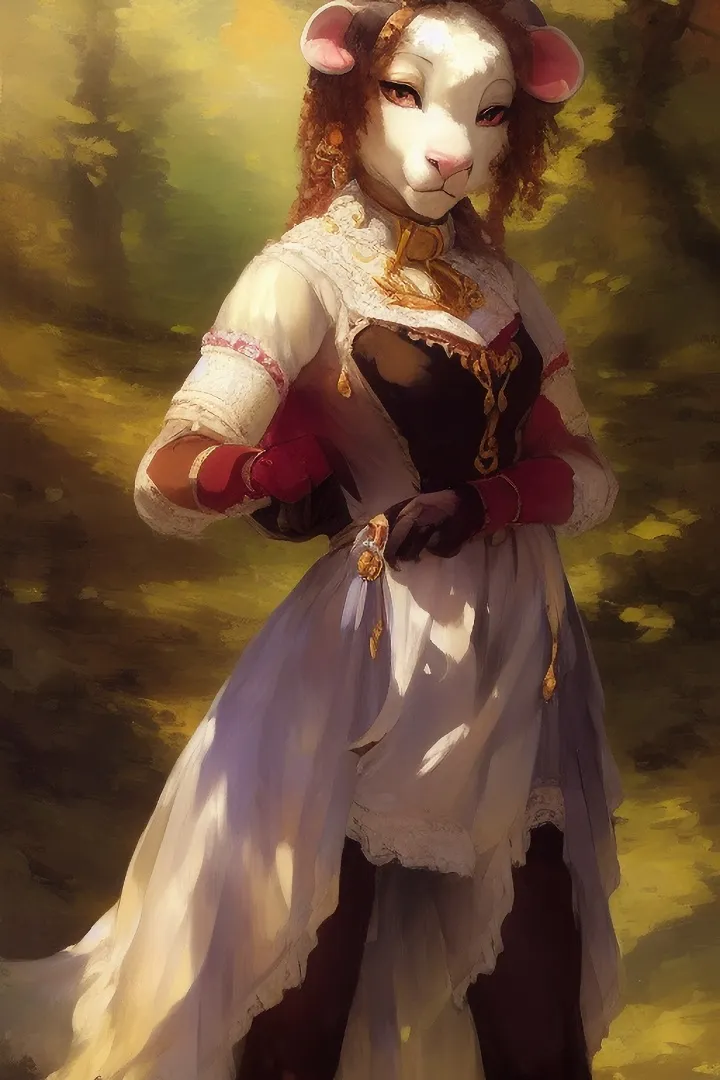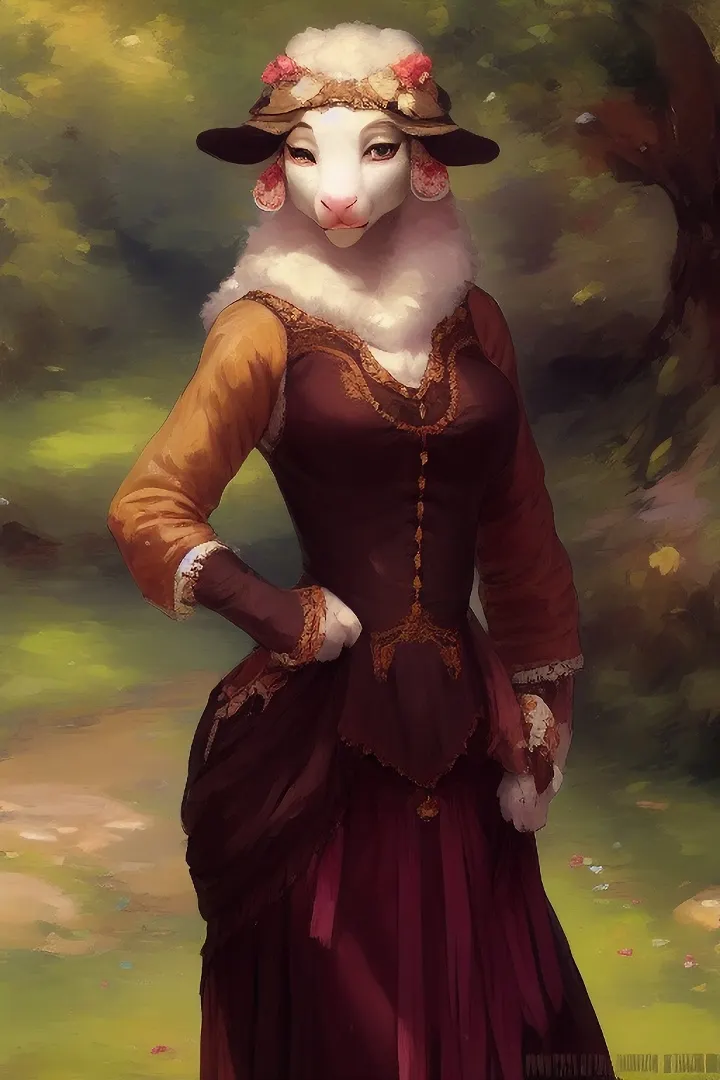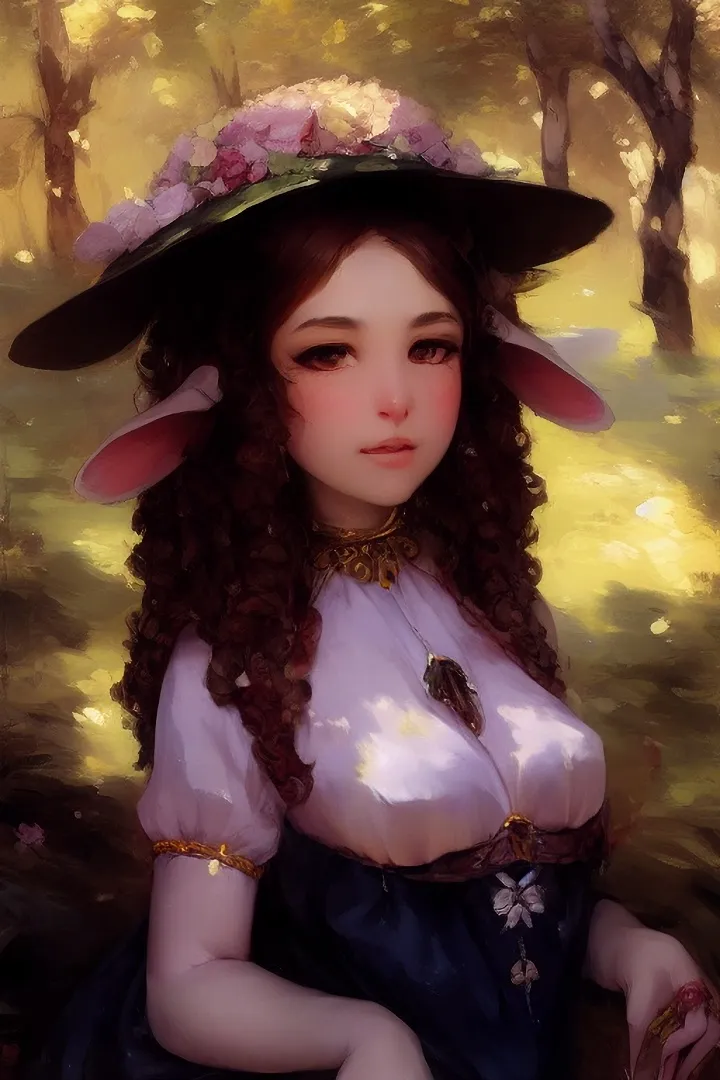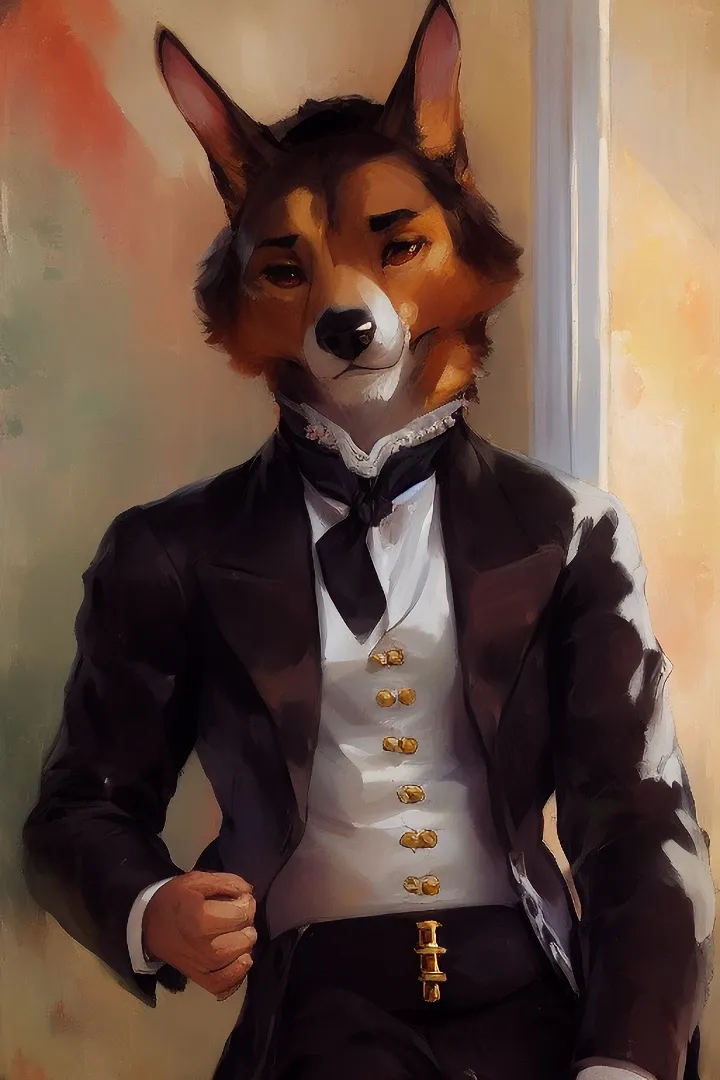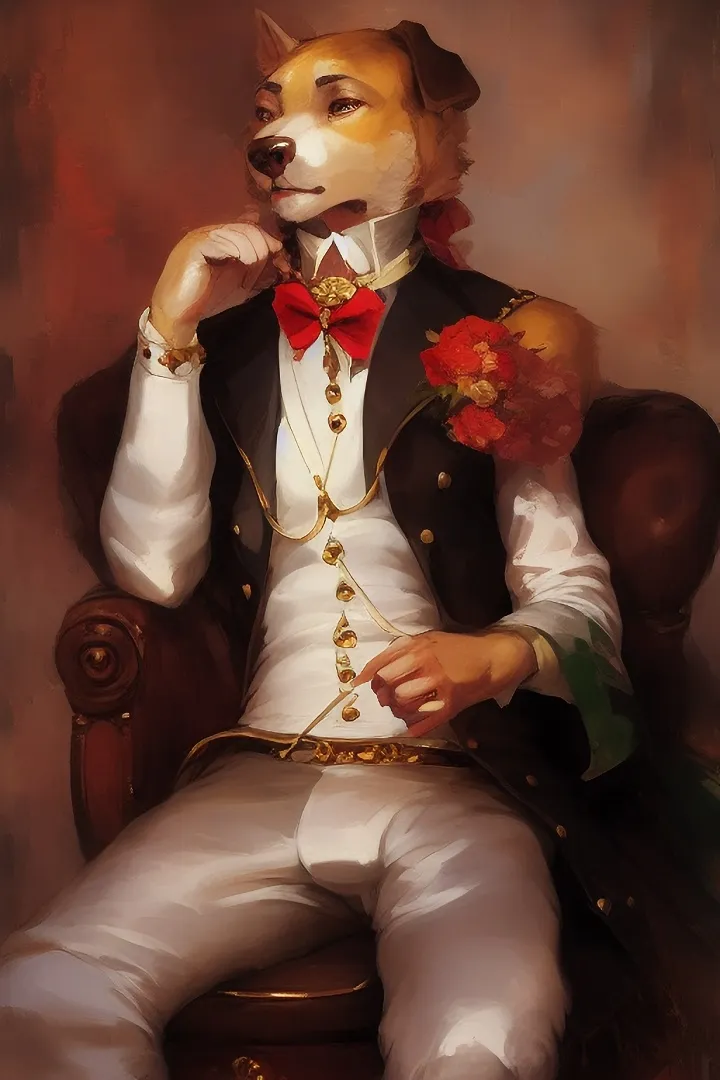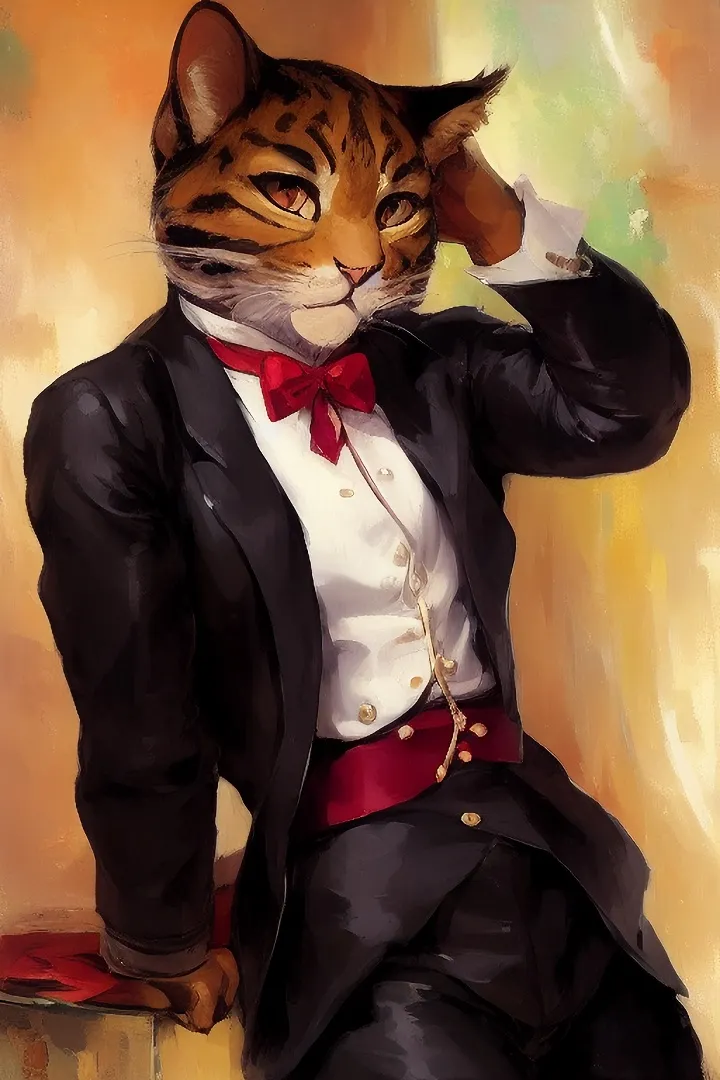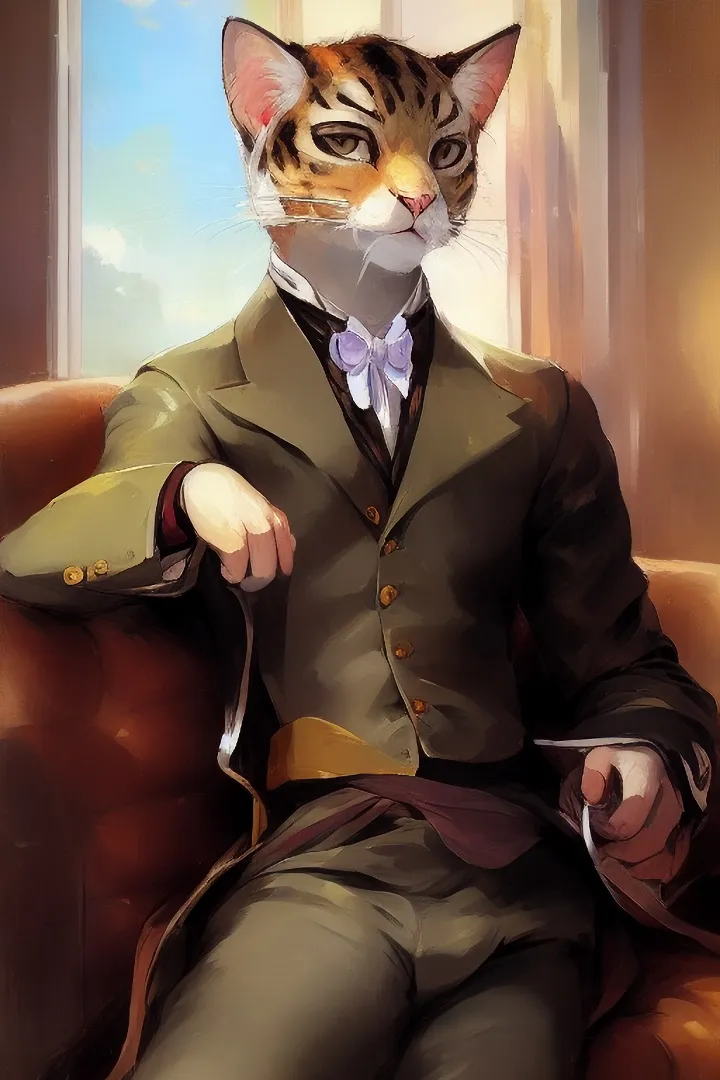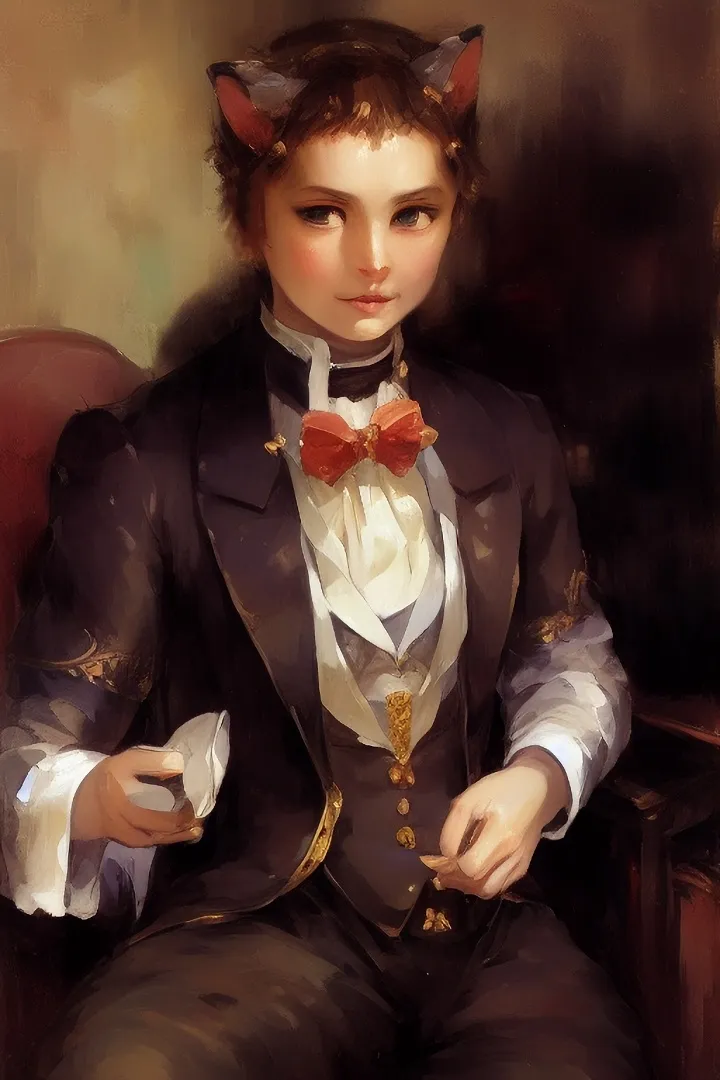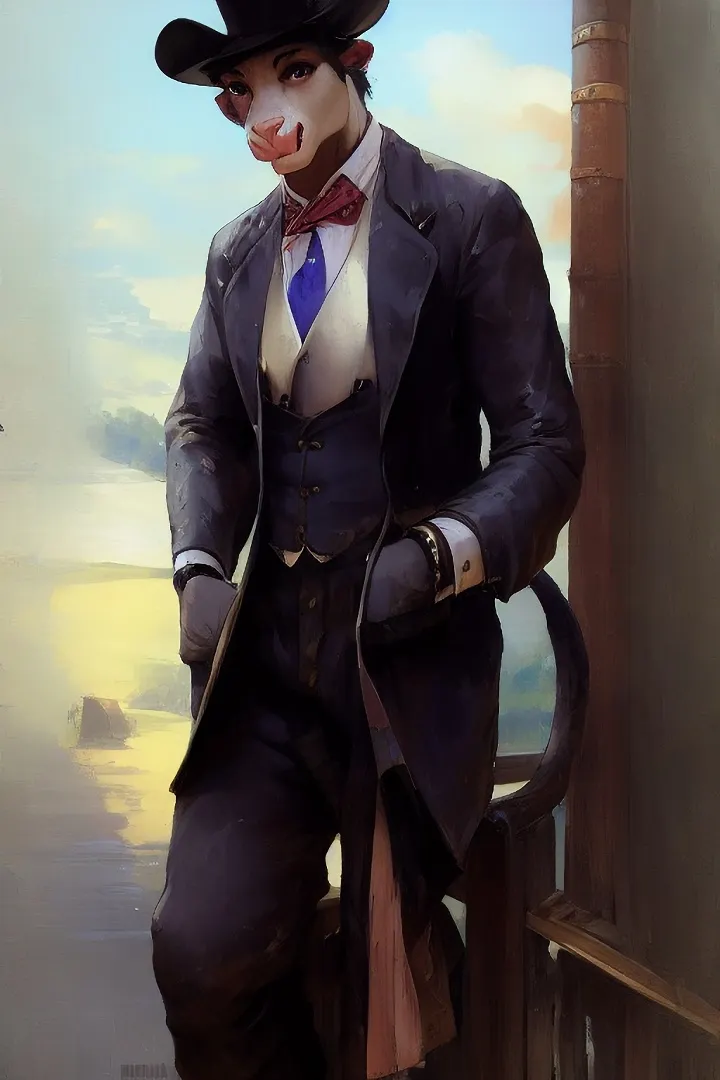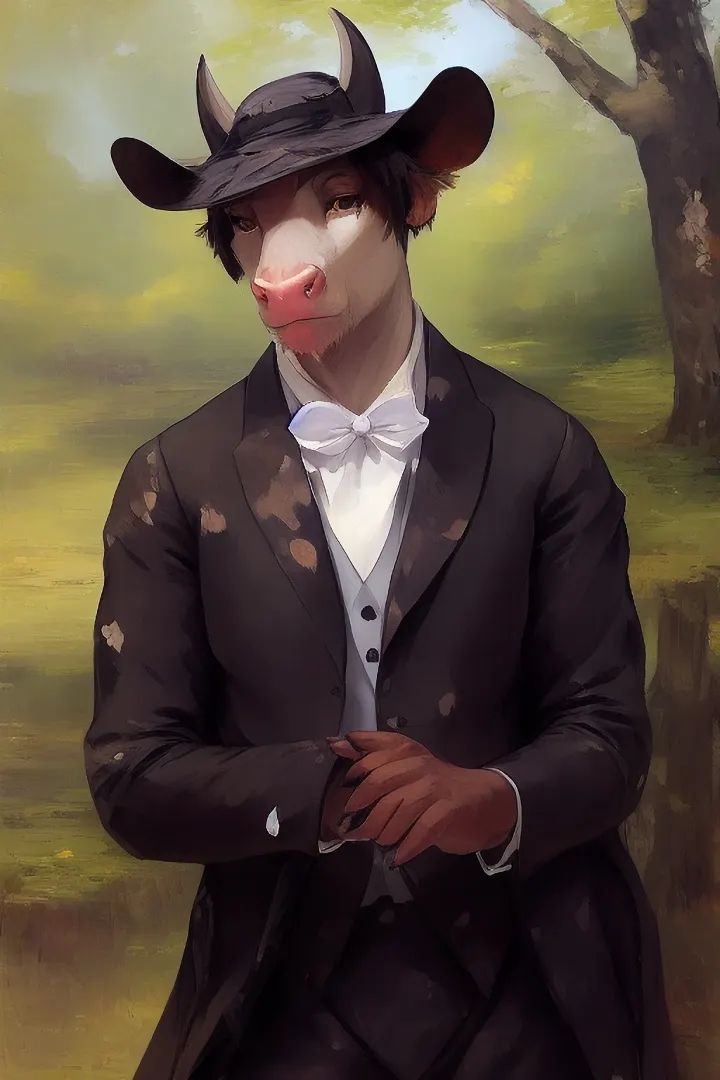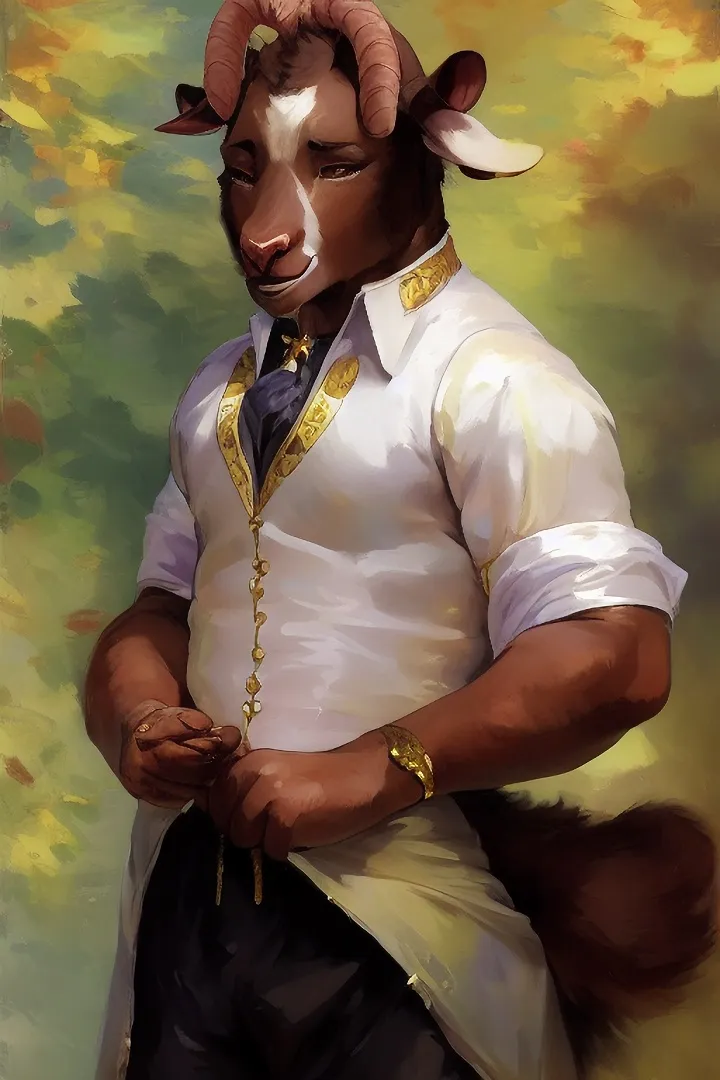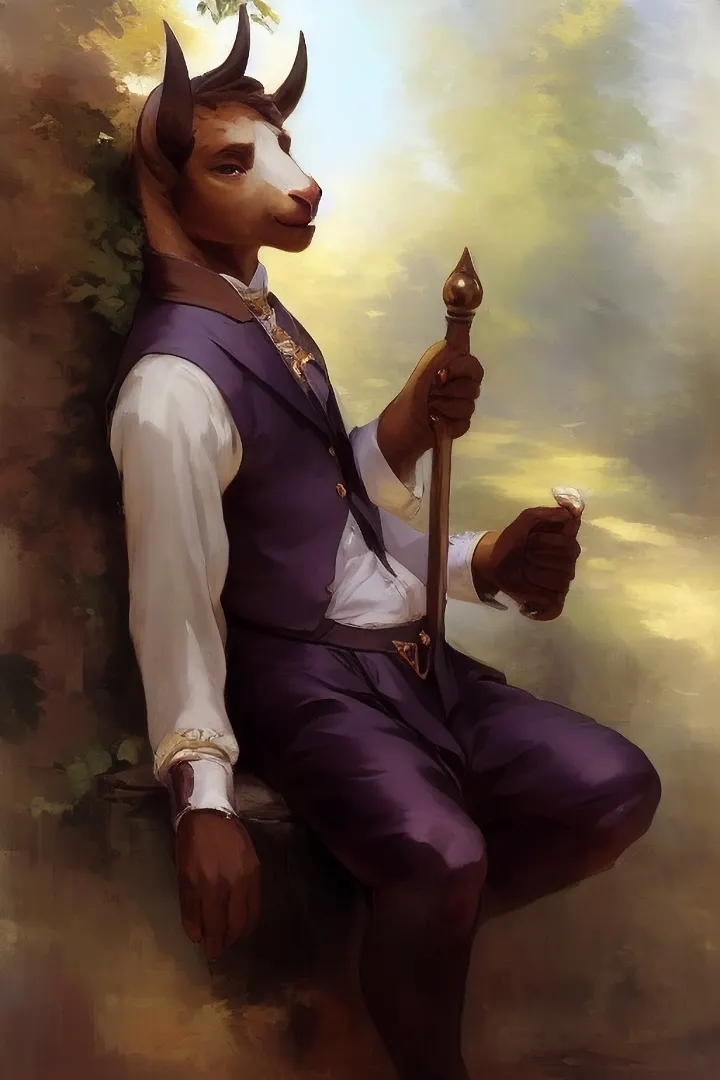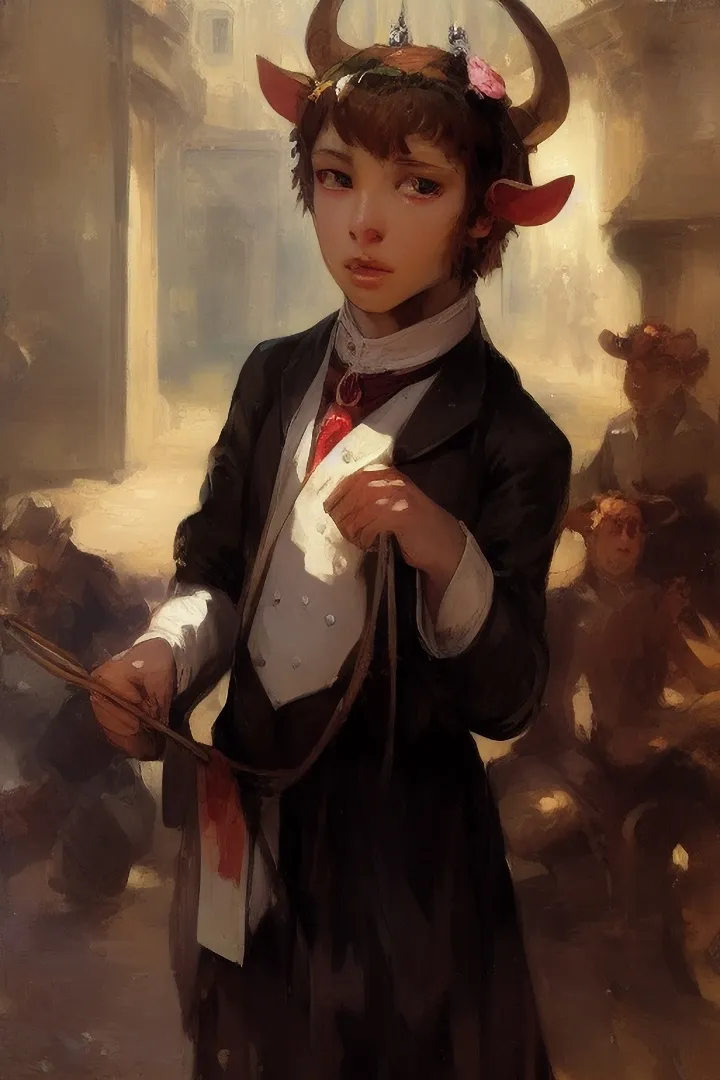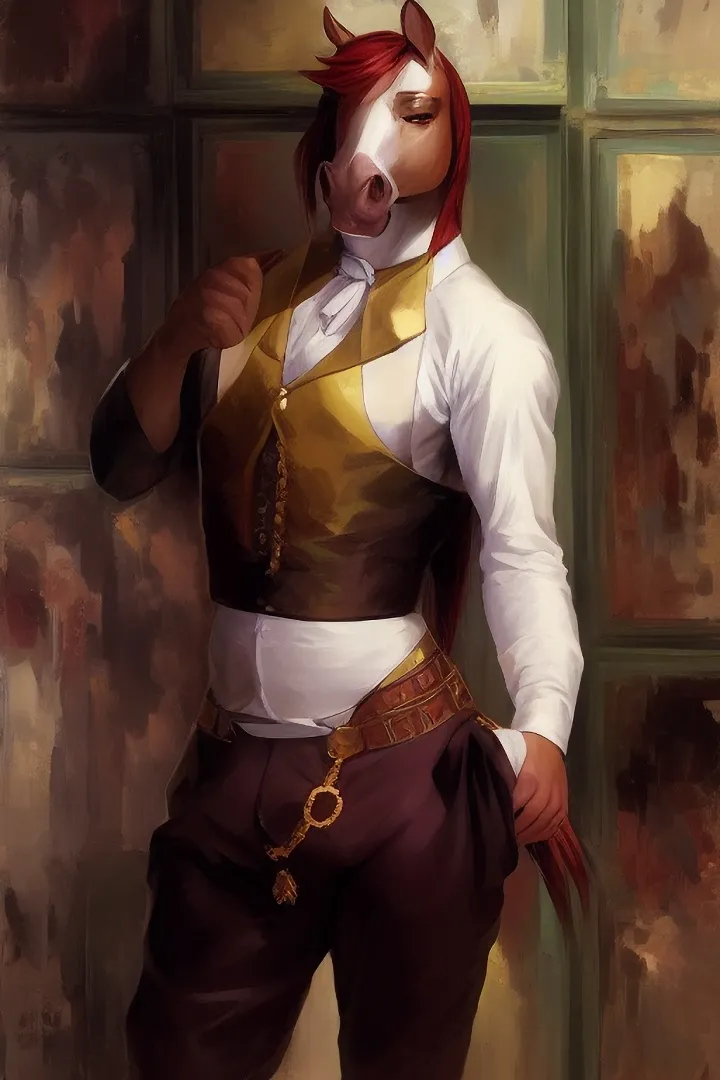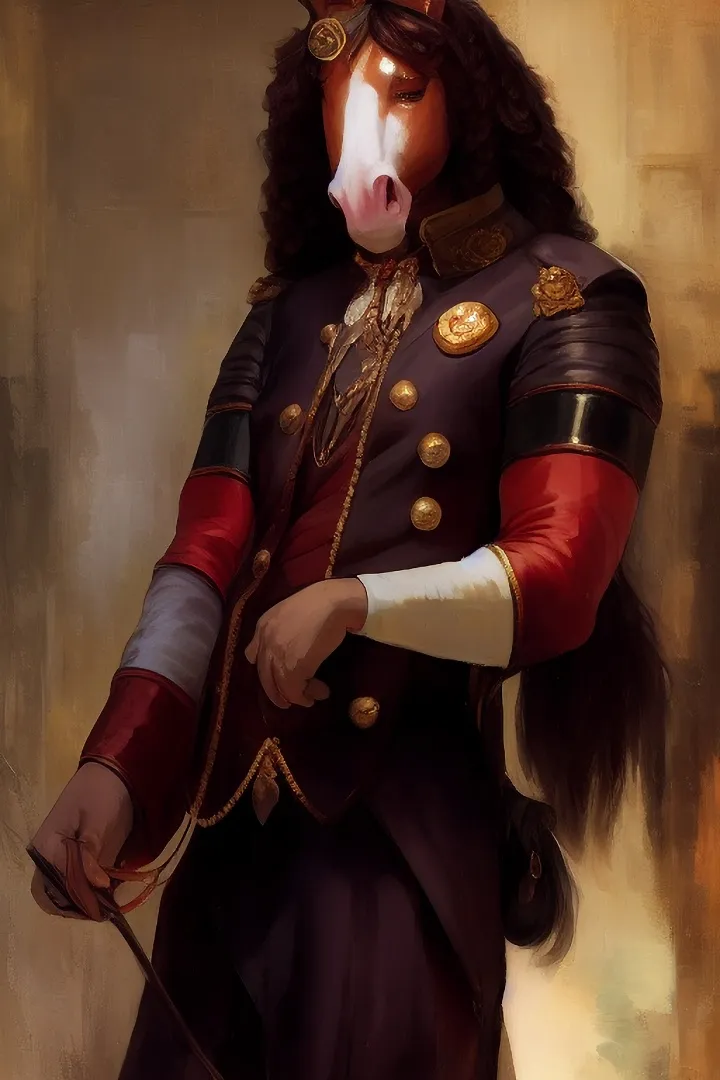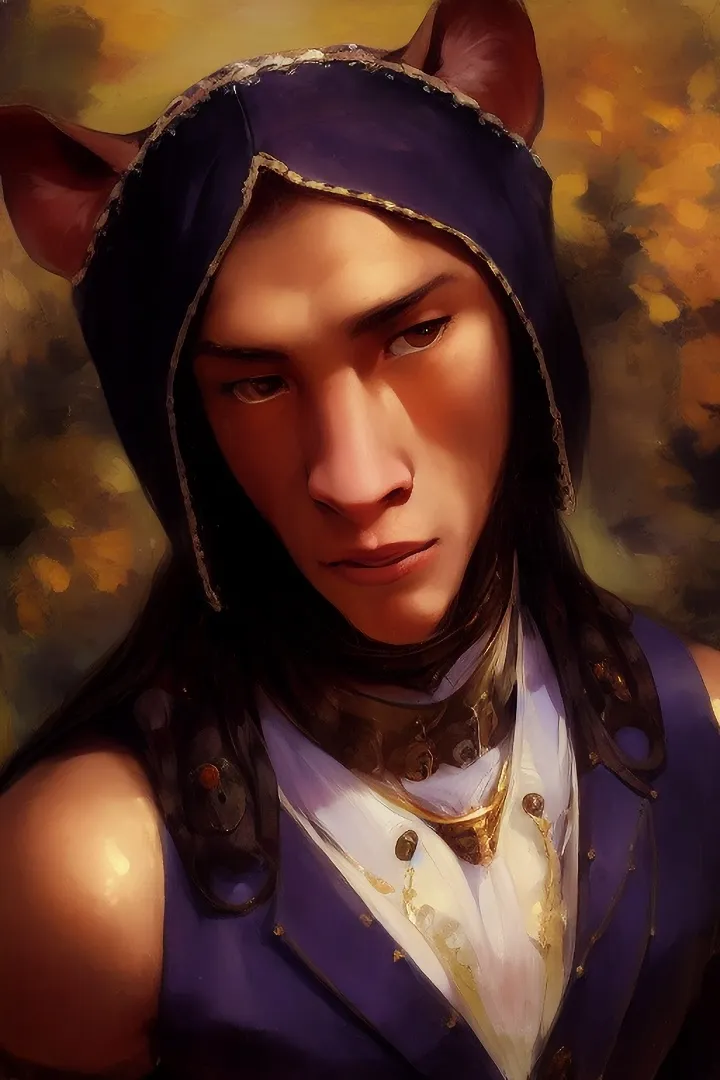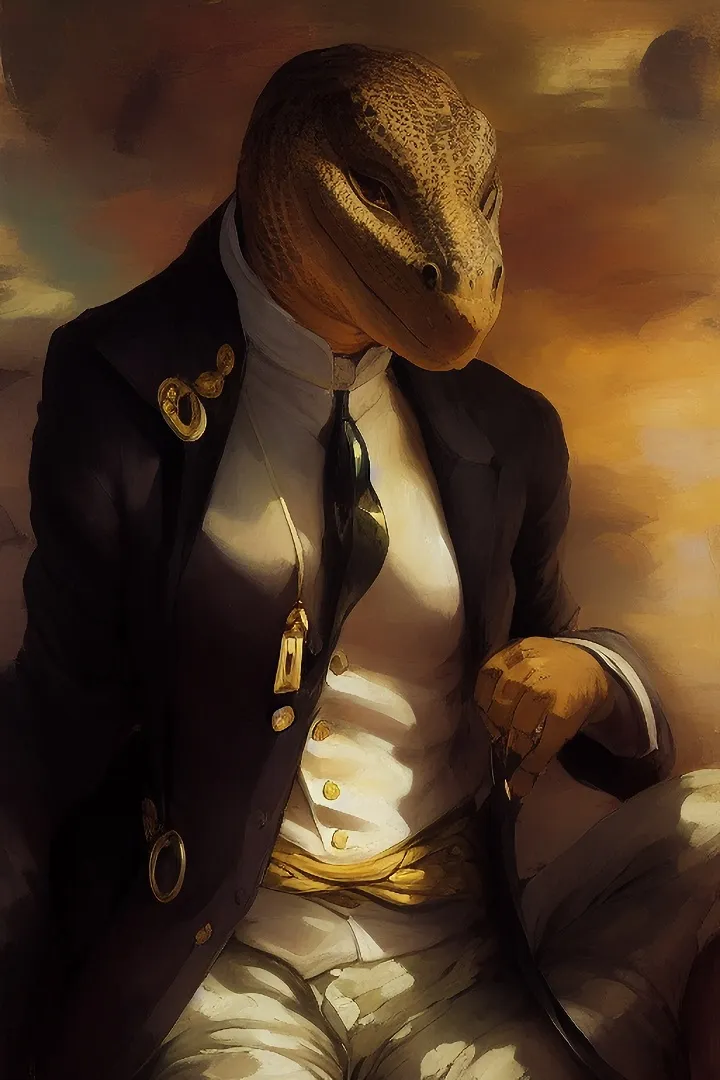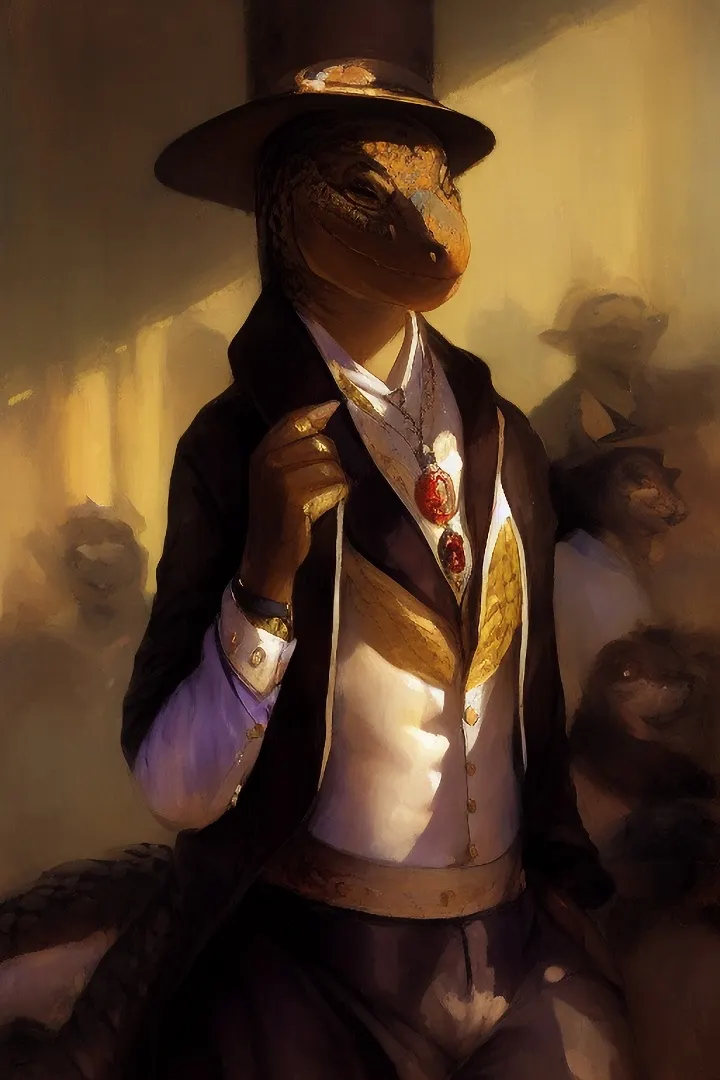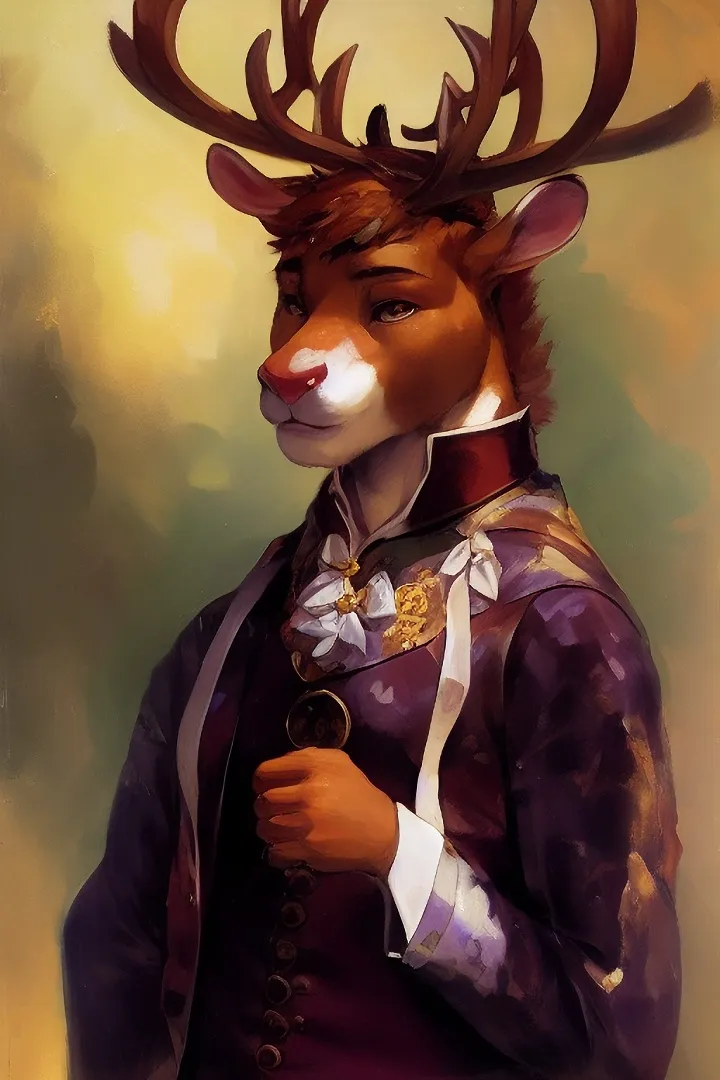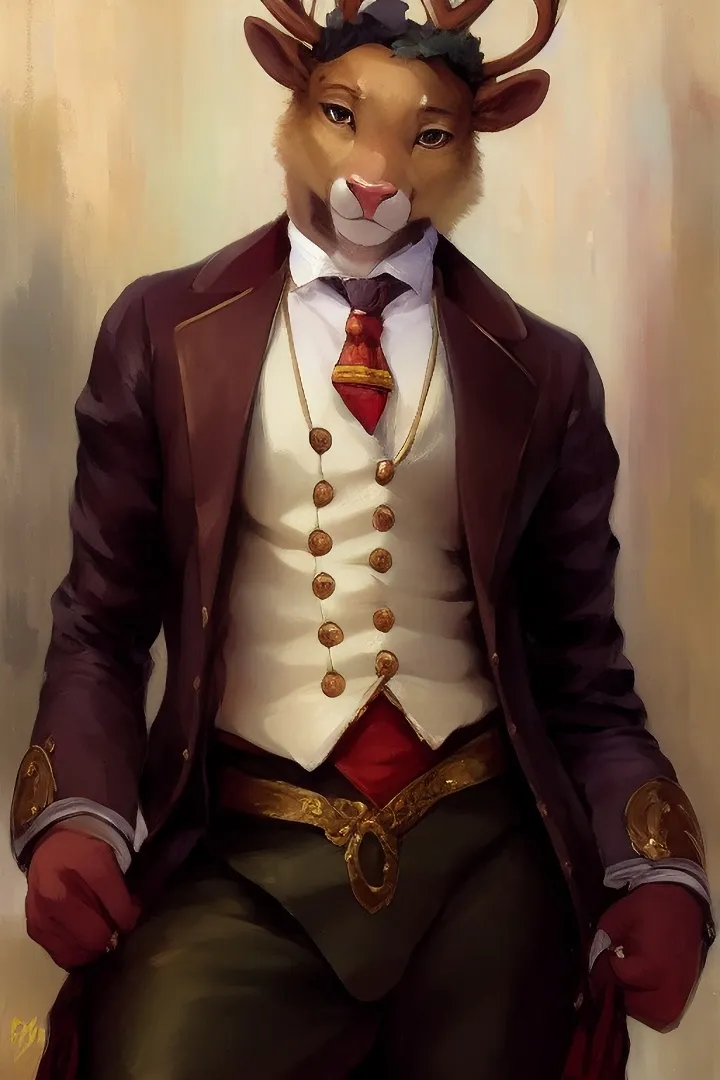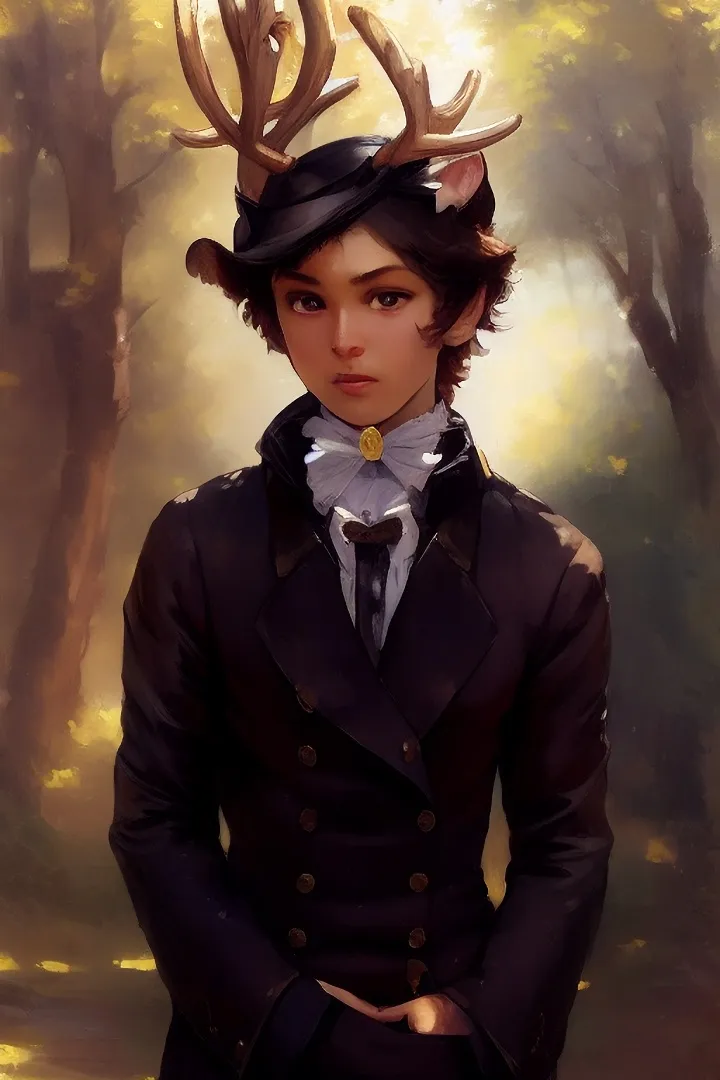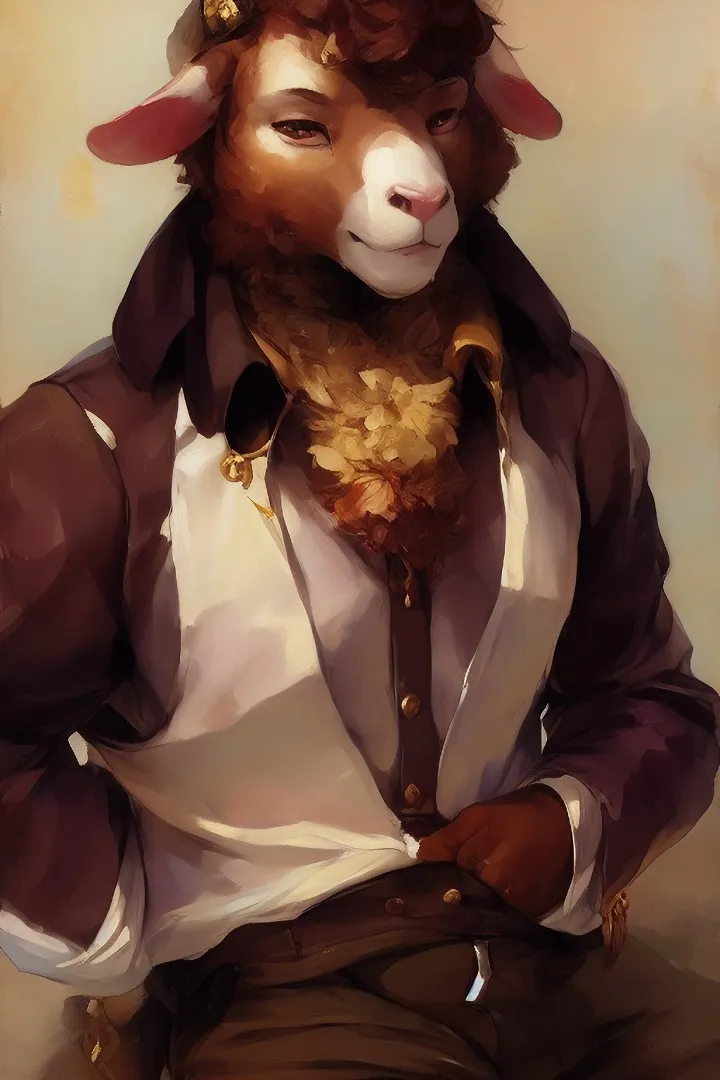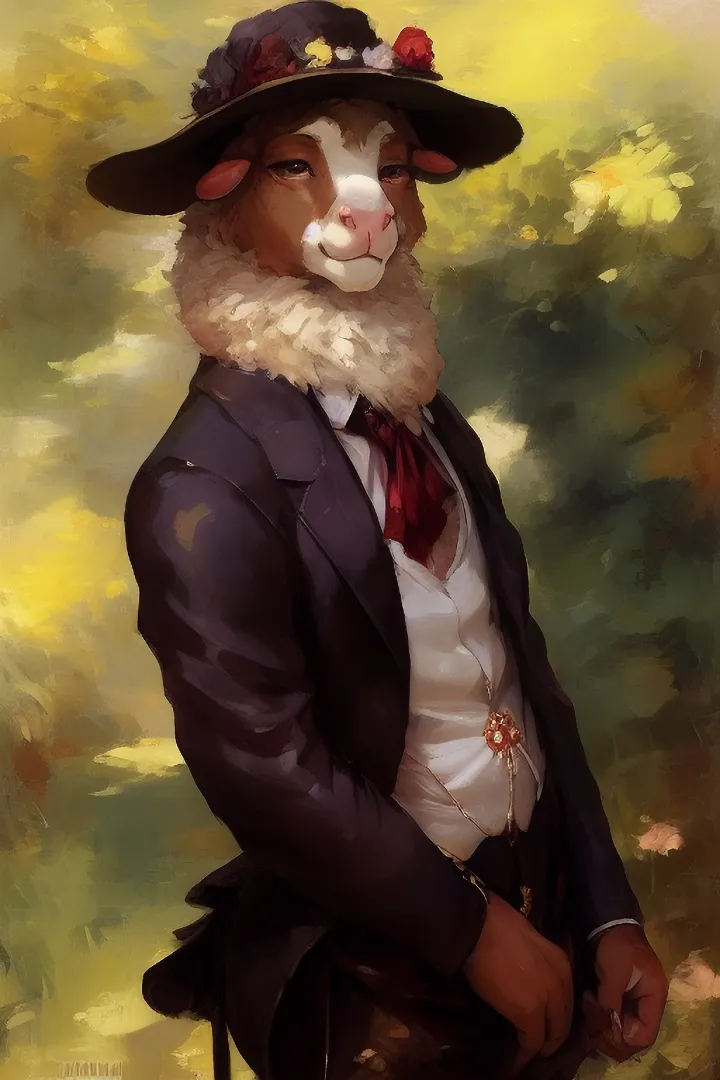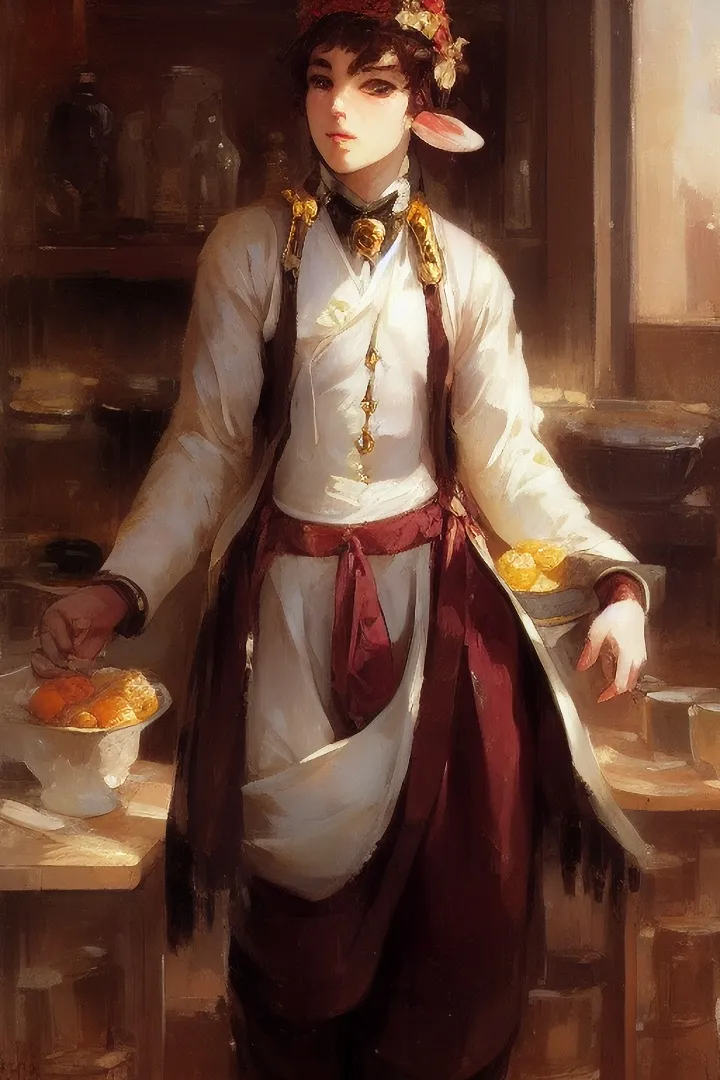In the centuries since the infliction of the curse, humanity has done its best through natural selection and family planning to alleviate the marring of their forms. Modern Sylvins have gained grace, beauty, and elegance in the form and function of their bodies and have fully adapted to civilized life with no two people appearing to be the same species. Such harmony is only possible due to the passing of a great many years.
Sylvins, like all Eyomic humans, were also inflicted with the Genus Iniuriam, a particularly nasty curse which ensures one cannot tell the reproductive sex of a human by their general appearance by decoupling masculine and feminine traits from the male and female sexes. While Sylvins still posses masculine and feminine appearances, these appearances cannot be used to tell a Sylvin's sex, nor is it any indication of their general preferences.
Personality
Like all humans, Sylvins folk are quite varied in their general behaviors. With most people, a general trend of behaviors can be found through careful and close observation. This is true of humans but to a much less degree. Humans are agents of chaos, change, selfishness, greed, and also altruism, great compassion, unwavering faith, and endless hope. These factors combine to produce a species that is bipolar by the standards of any other species.
With all due respect to humanity, the following can be said to be its core, the set of behaviors around which any human species' individual members form their personalities. The raw iron which the forge of birth and hammer of parentage will forge into a finely honed blade upon the anvil of life's experiences.
Humans have an intrinsic need to be a part of a group, preferably a large community. This need is compounded by their desire to be highly respected within the affirmation community if they cannot be the most revered within it. Consequently, humans constantly make small communities within larger communities and seek out new communities. This is both a form of self-gratification and a deep seeded belief that if they had power, they could make life better for everyone.
Humans inherently want to make their own standing in the world better, and there is no better way to do this in their eyes than to be the one in charge of their tribe. Regardless of what a human does, they do it because they believe it will ultimately help others. At their core, no matter how misguided, no matter how uneducated, or misinformed, regardless of their specific beliefs, a human does what they do under the belief that ultimately it will help others or put them in a position to help others.
Even here there is great variance, specifically in the number of people a human seeks to help. They may seek only to help themselves, or their families, or town, nation, or even everyone. There is no means by which one can know this aspect of a human without learning it first hand on an individual basis.
More than this cannot be said. Humanity may have instinctual behaviors like the majority of species, but such instincts are burned away by the socioeconomic circumstances of their birthplace and time. To know what a human is like is to know what their cultures are like.
Sylvins hold true to this standard, with a few small adjustments owing to the beastblood within their veins.
Sylvins tend to possess one or more of the general behavioral traits of the animal with which they share blood. Not the genuine animal as seen in real life, but rather the animal as it appears within Sylvinian Fables. For example: Lions are brave, bears are lazy but powerful, dogs are loyal, and so on. The traits expressed by Sylvins has changed as their fables have changed, indicating this may be an unintended effect of the Beastblood Curse. Regardless of its cause, this is a notable aspect of any Sylvin, so much so that it can cast a long shadow over their life.
For example, if a Sylvin shared blood with a sloth, and was generally slow in action, that is how their peers would treat them. As someone who is slow. They wouldn't blame them for their handicap, but would work around it/them. Even if the individual put in the time and effort to find ways around or overcome their speed deficit. This behavior and typecasting is not as true outside of Sylvinian cultures.
Naturally a Sylvin's biology will shape their behavior as well. Avian and reptilian Sylvins may lay eggs, and consequently will have developed instincts, routines, and social constructs to handle such events. These behaviors are less intrinsic and more extrinsic and formed by social pressures. For example, the bovine-blooded women who have udders native to the City of Lisbrough will cover their udders as the would their breasts. The same group of Sylvins living a mere hundred kilometers south in the City of Carnens leave their udders exposed, or at least do not specifically cover them. Both groups will insist their way is the civilized way while the others is barbaric. Interestingly, both groups agree that their human bousum must remain covered.
Physical Description
Sylvins are quite varied in appearance, as are all human species native to Eyom. This goes beyond the mere differences in height and build known to Imperial citizens. Eyom's humans were afflicted by a flesh-changing curse nearly two thousand years ago at the very dawn of recorded history.
The Beastblood Curse made alterations to Eyom's humans at the soul level through blood magic. These alterations take the form of animal features replacing human features such as feet replaced with paws or hooves. While the majority of humans look much like a demi-human or beastfolk there are some in more rural areas who still retain the appearances originally forced on them by the curse, such as digitigrade human legs, small patches of fur, mismatched human and animal eyes, and other such mutant features.
Sylvins are humans who were blended in form with an animal while retaining their humanoid shape. They greatly resemble Beastfolk, though resemble one another more than any other group, even across different Tribes. For convenience's sake, a Tribe is defined as a group of Sylvins sharing their appearance with a specific animal. Sylvins consider individuals to be members of a Tribe regardless of location, distance, or culture. Someone is only not a member of a Tribe when their animal features come from a different type of animal to that of the Tribe in question. The term is used as a taxa rather than a social group.
Broadly speaking, Sylvins are humanoids with additional features coming from seemingly random animals. The features are non-specific, even within a Tribe. Some members might look entirely human save for having claws rather than nails, others have fur, animal ears, a tail, muzzles, and fangs. The degree of mix between human and animal is mostly random, though noble families have been able to breed a consistent appearance for their Houses. The commonly accepted theory among Eyom's scholars is that the parents wishes and beliefs factor into their child's degree of blending. Our own investigations support this notion, but the specific mechanisms remain obscured.
While there are 151 tribes on Sylvinian record, and countless more within the world's many corners, most Sylvins belong to one of the original 12 tribes, aslo known as the Great Tribes. Those Tribes are as follows:
- Apis - Resemble bees and wasps. Predominantly animal in appearance.
- Bombyx - Resemble silkworms and moths. Predominantly animal in appearance.
- Canis - Resemble canines of all kinds, primarily domestic dogs. Appearance covers full spectrum.
- Capra - Resemble goats. Appearance covers full spectrum.
- Equus - Resemble horses. Appearance covers full spectrum.
- Felis - Resemble an unknown species of wildcat (presumed extinct). Appearance covers full spectrum.
- Gallus - Resemble chickens. Predominantly animal in appearance.
- Ovis - Resemble sheep. Appearance covers full spectrum.
- Scrofa - Resemble wild hogs. Appearance covers full spectrum.
- Tarandus - Resemble Caribou. Appearance covers full spectrum.
- Taurus - Resemble dairy cows. Predominantly animal in appearance.
- Varanus - Resemble a species of wolf-sized lizards called "Great Savanna Monitors". Fully animal in appearance.
Relations
Sylvins have a complex web of relationships with Eyoms otehr peoples. This is due ot the verried nature of humans, as well as their comparatively short lives. FOr many peoples, human leadership changes before a true relationship can be formed. Elves are notably distant towards human governments for this reason, preferring to interact with Sylvins as if they were abstract hiveminds.
On the individual level, Sylvins are usually pitied for their recent hardships. While the worst of the collapse of the Second Sylvin Empire is well behind them, and the Third Sylvin Empire has formed, times are still hard as the Sylvin seek to reclaim their common heritage and unify once more. Other than that general pity, Sylvins are a good zero point to measure other peoples by. Their are generally neither liked nor hated.
The one exception is Gnolls, who have a mild cultural dislike of Sylvins specifically due to Sylvin involvement in the Fourth Gnoll War as well as having pushed them from their ancestral home during the first century.
Settlements
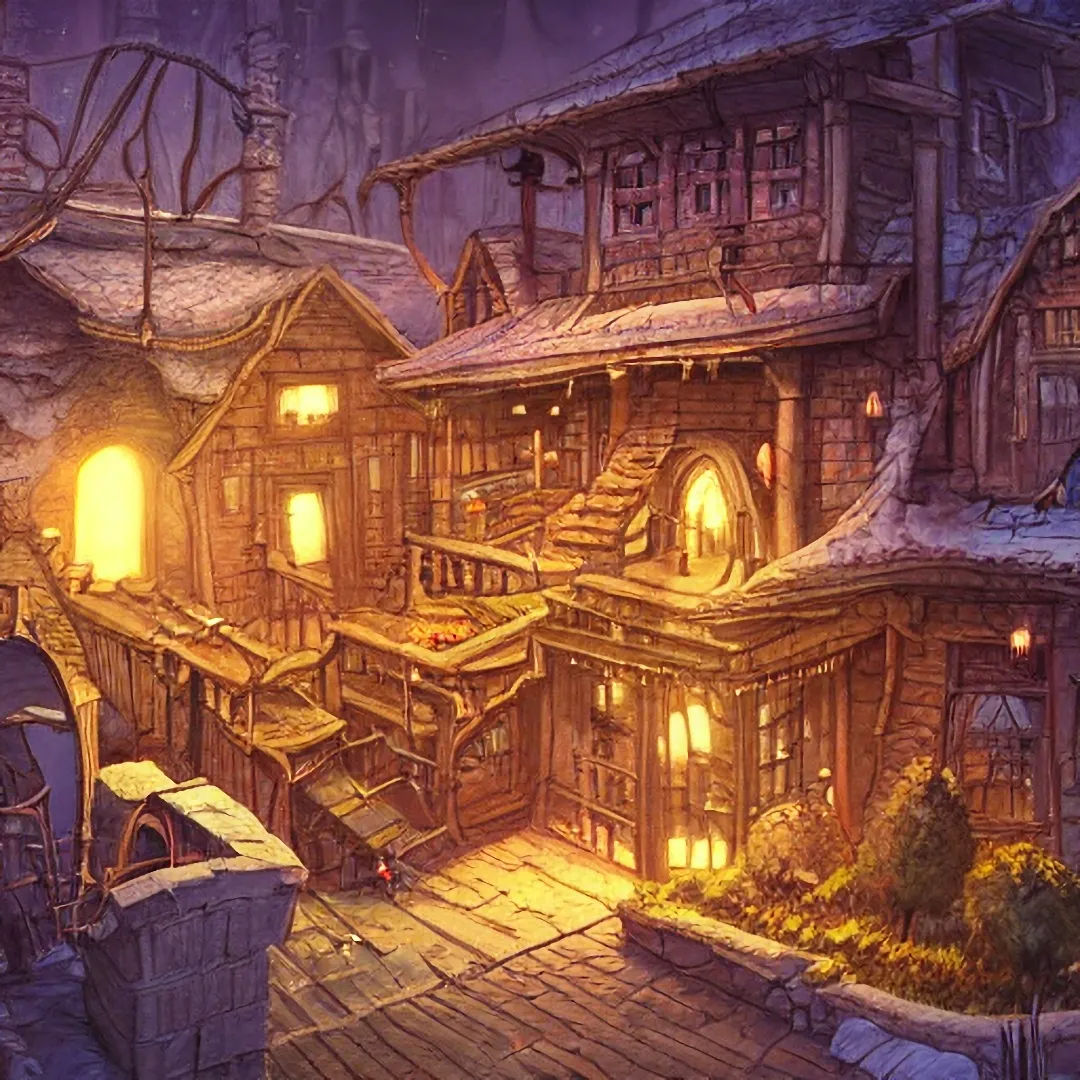
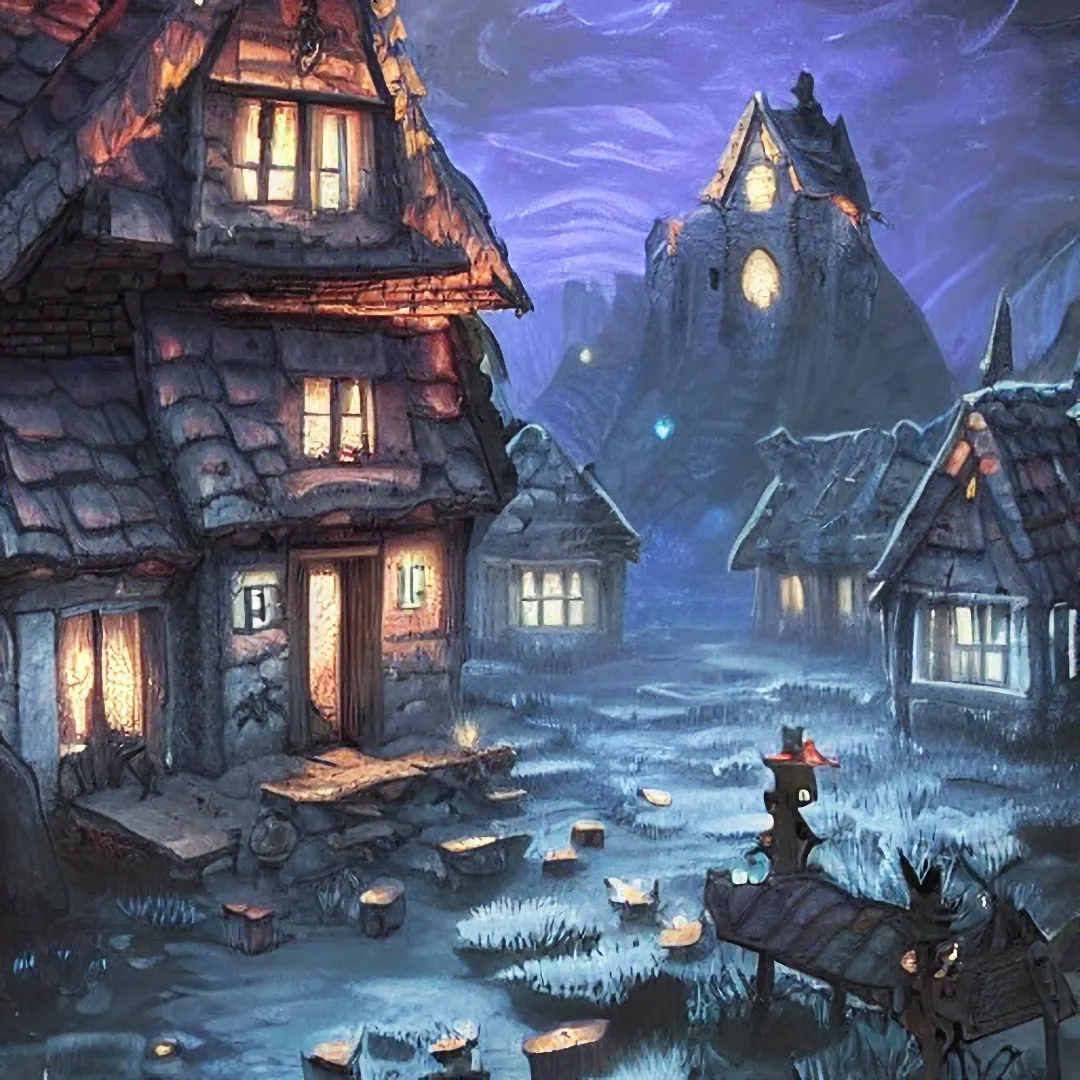 Sylvins have much the same general architectural preferences as Imperials. THey prefer centralizing communities around multiple groups of similar structures. Residences are located togeather in one area, workplaces in another, with shops dotted between them. The convergent emergence of these trends merits study.
Sylvins have much the same general architectural preferences as Imperials. THey prefer centralizing communities around multiple groups of similar structures. Residences are located togeather in one area, workplaces in another, with shops dotted between them. The convergent emergence of these trends merits study.
Sylvins do have their own general preferences. They prefer to build wide, with taller structures being found almost exclusively in the hearts of their largest cities. Even these great structures are made roomy, with at minimum half a floor serving as a residence, and more commonly an entire floor being owned by one particular individual or family.
An admittedly low-population poll indicates the reason behind this phenomenon is due to a small amount of animalistic terratorialness which can be found in all Sylvins. However this has yet to be confirmed.
Alignment
Sylvins, like all humans, are very vested in the existence of reasons. Humans need things to happen for a reason, and that reason had better have some logic behind it or so help you armored fist of the nearest Sylvic hero... Suffice to say, when even a handful of humans are left alone, to their own devices, given enough time, law and order will emerge. An incredibly complex, multi-layered, chaotic sort of order with a labyrinthine and byzantine set of laws that devils have been known to mistake for love letters and proposals on occasion... But law and order nonetheless.
Sylvins are interesting among the human species for their general disposition towards personal and communal growth. Perhaps original to Human behavior, Sylvins tend to prefer seeking power and wealth for their own gain. What they choose to do with this power is up to them. Typically Sylvins seek to secure their futures against any conceivable hazard and then progress to improving their community, as they see it as belonging (at least in part) to them and tend to believe their community should befit their status (or that it should more than befit their status).
Adventurers
Young Sylvins are notorious for leaving home to seek their fortunes in distant lands and the wilds they contain. You would be hardpressed to find any Sylvin who hadn't spent at least a summer traping about the wilderness with a rusty sword and minimal camping equipment trying to find themselves and be seen as brave by their communities.
Those Sylvins are not adventurers. They are but pale shadows to true Sylvin Adventurers. Sylvins have made adventuring a career path. One managed and overseen by a guild (known as The Four Youths, in memory of its young founders), which serves less as a regulatory body and more a communal Lodge for celebrating successful quests, providing information about the local area, and a place to bunk down while in town. This is made possible by the many, some would say deranged, Sylvins who in their youthful psudo-adventuring decided "Yes, this is what my life will be about. I shall die in the maw of a terrible beast, and be remembered as a legend. For it is better to burn out than fade away."
These Sylvins have greatly shaped the course of Eyom in many incredible, awestrucking, and inconceivably stupid ways. It is a shame they cannot be harassed and put collectively to a singular task.
Racial Traits
Standard Racial Traits
Ability Score Racial Traits: Sylvins gain a +2 racial bonus to one ability score of their choice at creation to represent their varied nature.
Type: Sylvins are humanoids.
Size: Sylvins are Medium creatures and thus receive no bonuses or penalties due to their size.
Speed: Sylvins have a base speed of 30 feet.
Languages: Sylvins begin play speaking Common. Sylvins with high Intelligence scores can choose any languages they want (except secret languages, such as Druidic).
Bond to the Land: Sylvins have a +2 dodge bonus to AC when in a specific terrain type selected from the ranger's list of favored terrains. This choice is made at character creation, and cannot be changed. It should be terrain similar to that found around their home town, but can be another type, backstory permitting.
Cornered Fury: Whenever a sylvin is reduced to half its hit points or fewer and has no conscious ally within 30 feet, it gains a +2 racial bonus on melee attack rolls and to Armor Class.
Bonus Feat Sylvins receive a single feat of their choice at character creation as a bonus feat to represent their varied nature.
Curiosity: Sylvins are naturally inquisitive about the world around them. They gain a +4 bonus on Diplomacy checks to gather information, and Knowledge (history) and Knowledge (local) become class skills for them. If they choose a class that has either of these Knowledge skills as class skills, they gain a +2 racial bonus on those skills instead.
Beastblood: Sylvins receive the general and proportional abilities of the animal they are based on. Due to the great range of creatures, and the varied nature of humans, this ability depends on GM fiat and ruling. It is recommended to allow Sylvins access to the movement abilities of the animal they choose (eg climb speed for a squirrel-based Sylvin, a clumsy and slow flight speed for any flying-animal-based-Sylvin, a bonus to acrobatics for a rabbit-based Sylvin, etc.), as well as any obvious key traits of an animal (eg, natural armor for rhino-based taurs, a claw attack for cat-based taurs, a faster run speed for horse-based taurs, etc). If the GM feels a particular animal's abilities create a PC that is too powerful, it is important to remember that Sylvins do not necessarily possess all of an animal's abilities, and also, many of them possess an animals weaknesses too (eg, polar-bear-based-Sylvins deal very poorly with temperate temperatures, insect-based Sylvins being easily crippled by blunt weapons cracking their exoskeletons, feline-based Sylvins being incapable of not being an asshole at the worst possible times, fox-based Sylvins possessing a musk which will attract things that like to eat foxes, etc.).
Tribe Talent: All Sylvin Tribes have some unique skill they pass on to their members. While smaller Tribes talents should be made up by the GM durring caracter creation, the Great Tribes Talents are as follows:
- Apis - For the Swarm!: Members of Tribe Apis can share their square with any allied unit, and do not count as obstacles towards their allies for the purposes of movement or making attacks.
- Bombyx - Silk Road: Members of Tribe Bombyx have a +5 bonus to diplomacy checks when bartering and always get the opportunity to barter regardless of the disposition of the person they are bartering with.
- Canis - Sylva's Might: Members of the Canis Tribe gain one use of Rage as a barbarian of equal level once per day.
- Capra - The Masked Tribe: All members of Tribe Capra begin play with one Lesser Royal Oak Mask.
- Equus - Revitalise: Members of Tribe Equus can remove any Confused, Dazed, Dazzled, Exhausted, Frightened, Nauseated, or Shaken Sickened condition from themselves as a full round action. This ability uses charges, which replenish after a meal. An individual has a number of charges equal to their constitution modifier.
- Felis - Deny the Fall: Members of Tribe Felis automatically pass their first combat maneuver check to resist being knocked prone in combat.
- Gallus - Focused Eye: Members of Tribe Gallus get a free re-roll on any failed perception check, if the check is visual in nature. This reroll uses charges, which replenish after a meal. An individual has a number of charges equal to their wisdom modifier.
- Ovis - Oorah!: Whenever a member of Tribe Ovis is reduced to 0 hit points, they immediately gain 1d4+Con temporary hitpoints, and may make a free attack against whatever reduced them to 0 hp at a -2 penalty. This ability can only trigger if the Ovis has rested after using it previously, or been magically healed of their wounds.
- Scrofa - Gore 'em: Members of Tribe Scrofa gain Boar Style as a bonus feat, but do not benefit from Improved Unarmed Strike unless they take it normaly.
- Tarandus - Winter's Breath: Members of Tribe Tarandus are taught from a young age a particular spell that grants them the use of a a Xd4 15-foot cone breath weapon. This deals a number of d4s equivalent to 1/2 their character level and can be used CHA mod times per day. This ability is recharged through the consumption of charmed alcoholic beverages (the magic permitting it being a cantrip which enchants the alcohol).
- Taurus - Herd Hammer: When members of Tribe Taurus make a charge attack, if they begin adjacent to an ally, that ally can move with them even if they have already moved that turn. This ability affects up to CHA mod allies. The allies do not gain any additional attack actions during this charge.
- Varanus - Bask to Win: Members of Tribe Varanus gain a +1 bonus to all stats provided they have rested for at least one hour in a warm location. This ability lasts for 4 hours, and can be used ad infinitum, but the duration does not stack.
Vital Statistics
The following are summaries of Sylvin's basic physical statistics.

